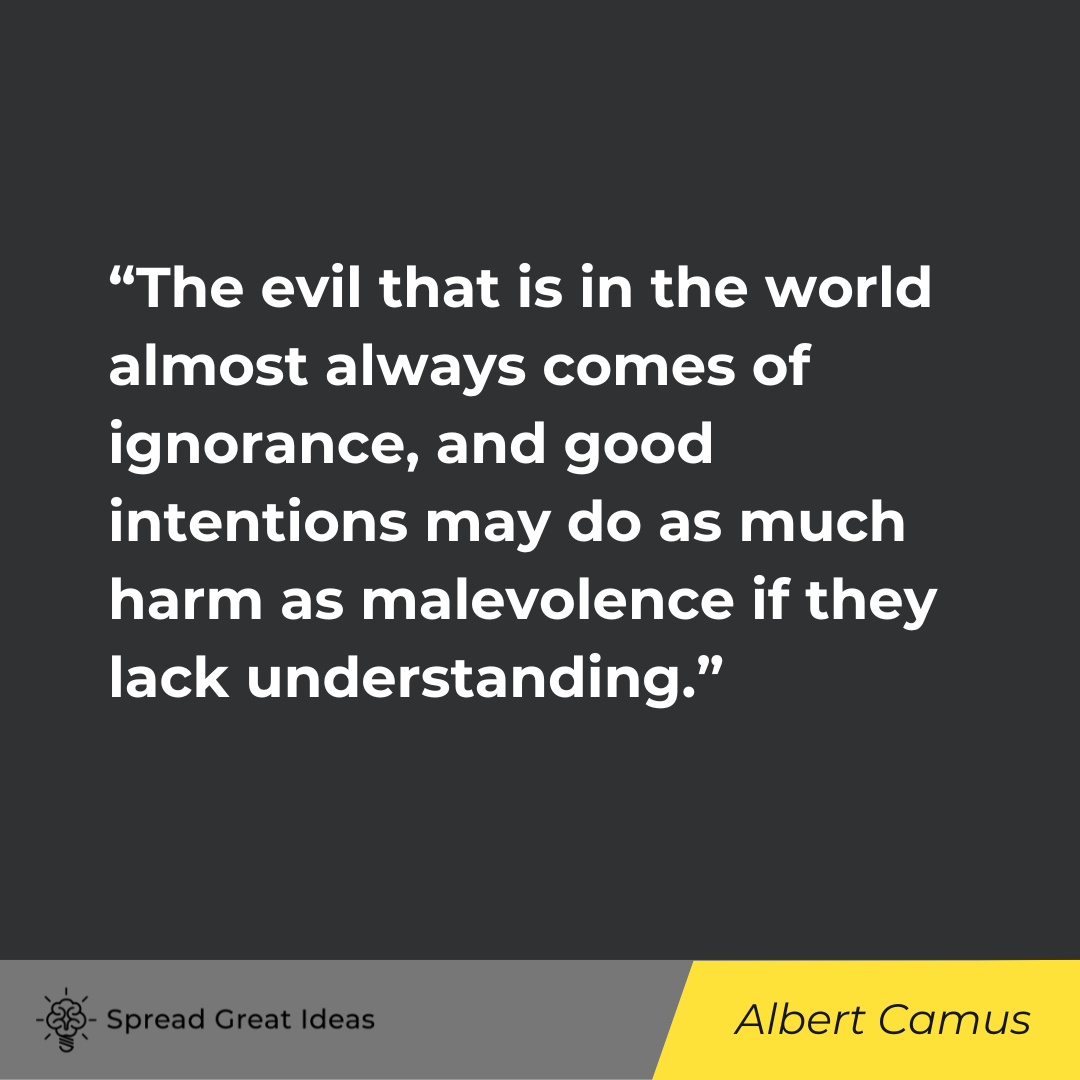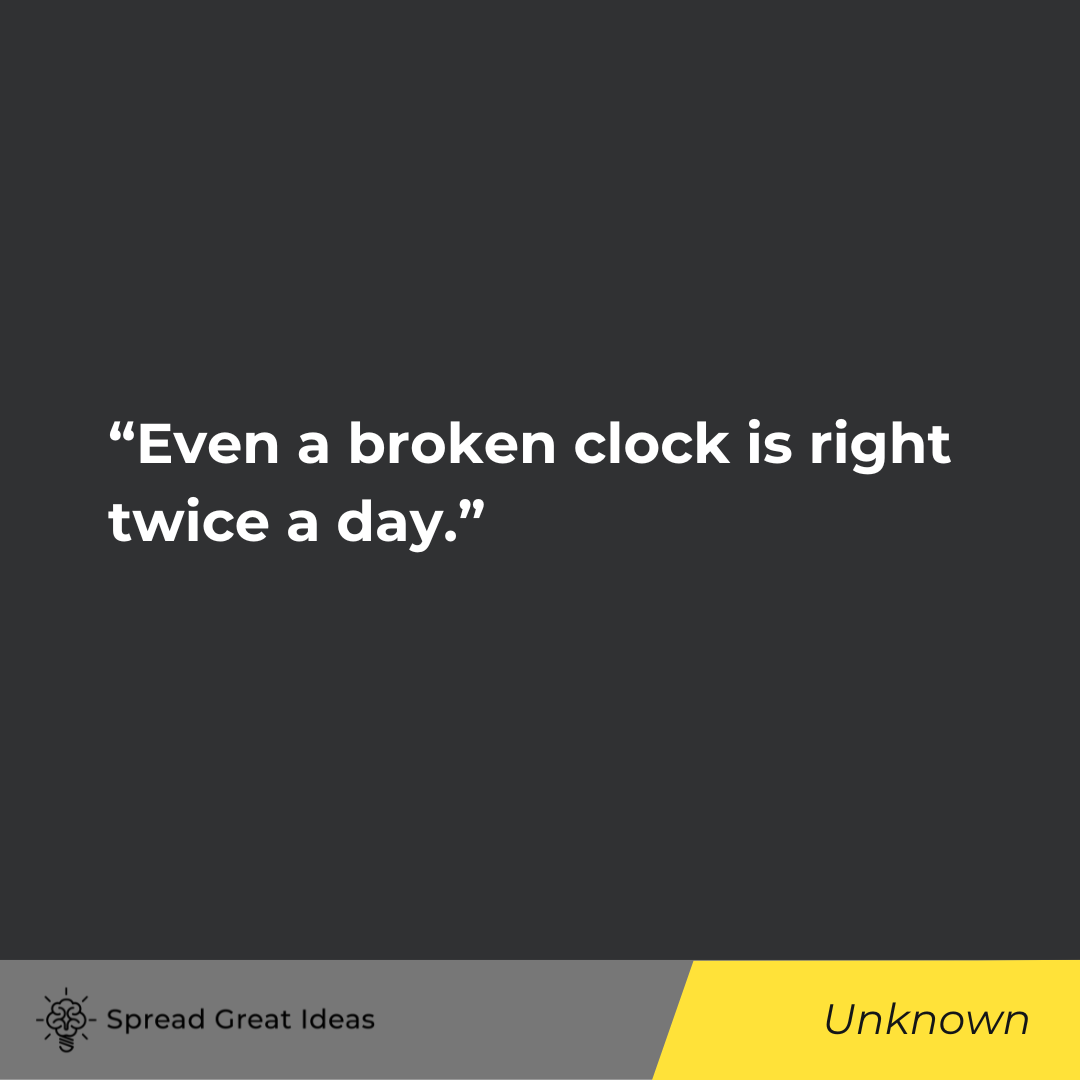Table of Contents
Free speech and critical thinking go hand in hand. One gives us the right to speak our minds; the other gives us the ability to make sense of the world.
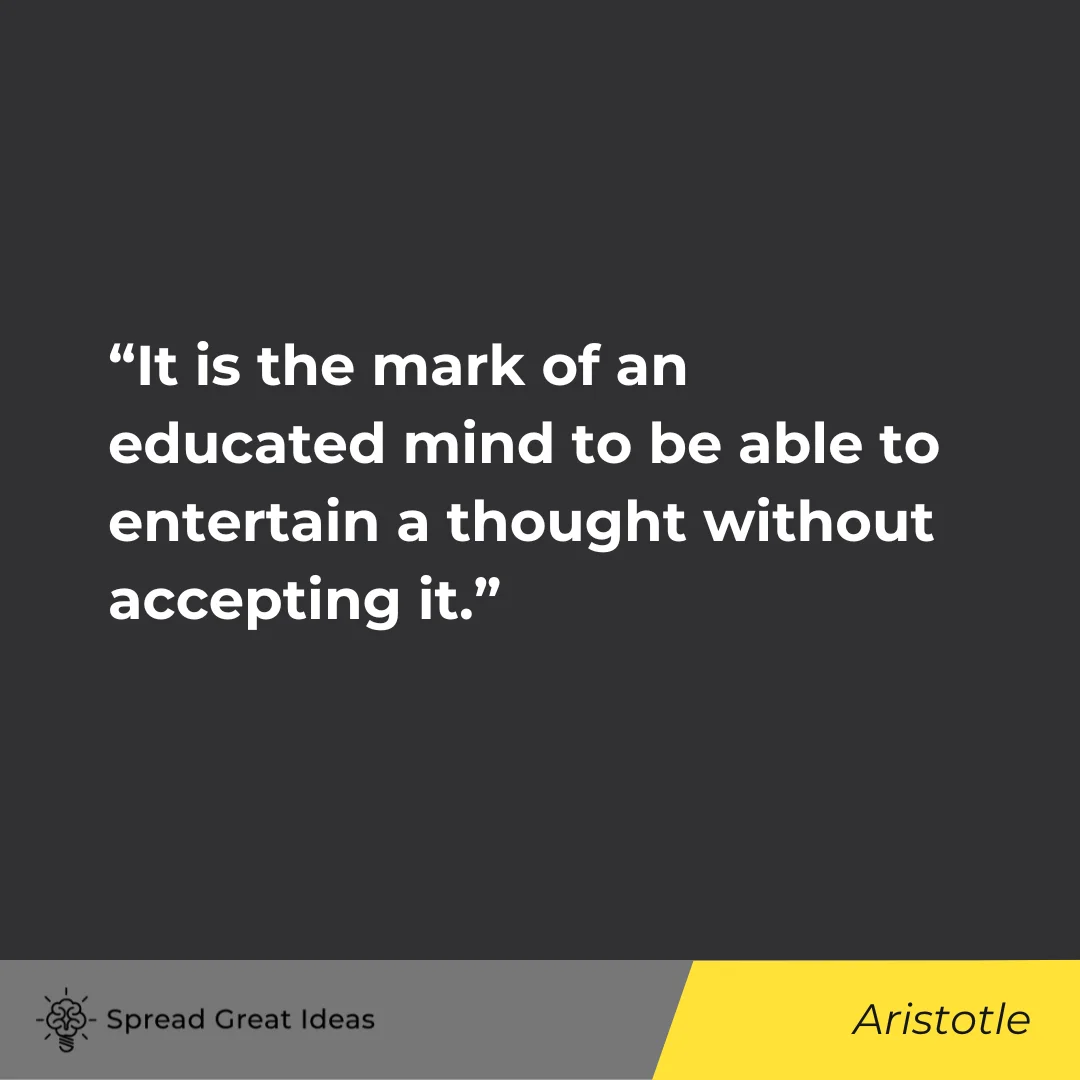
In an age of hot takes, echo chambers, and algorithmic outrage, the ability to think independently and express those thoughts without fear is more vital than ever. Whether you’re building a brand, growing an audience, or just navigating complex conversations, these two skills will determine your trajectory more than any trend or credential.
This curated collection of quotes on free speech and critical thinking brings together timeless insights from philosophers, activists, judges, comedians, and contrarians who understood that truth isn’t fragile, and neither is your mind.
Use these words as a reminder: stay curious, question confidently, and never let fear or fashion dictate your thinking.
Quotes That Champion Critical Thinking and Intellectual Independence
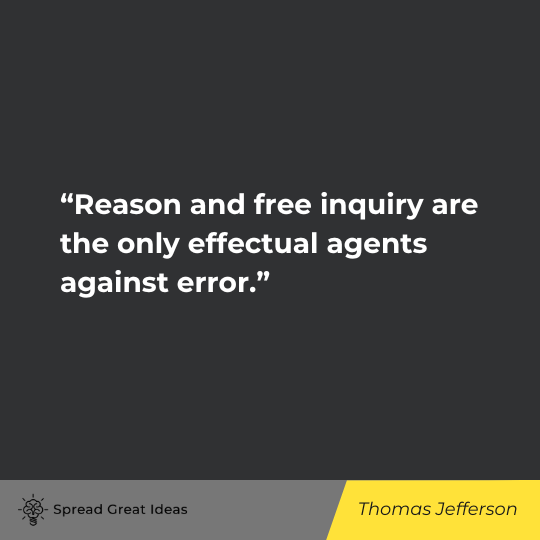
“Reason and free inquiry are the only effectual agents against error.” — Thomas Jefferson
“Science is organized knowledge. Wisdom is organized life.” – Immanuel Kant
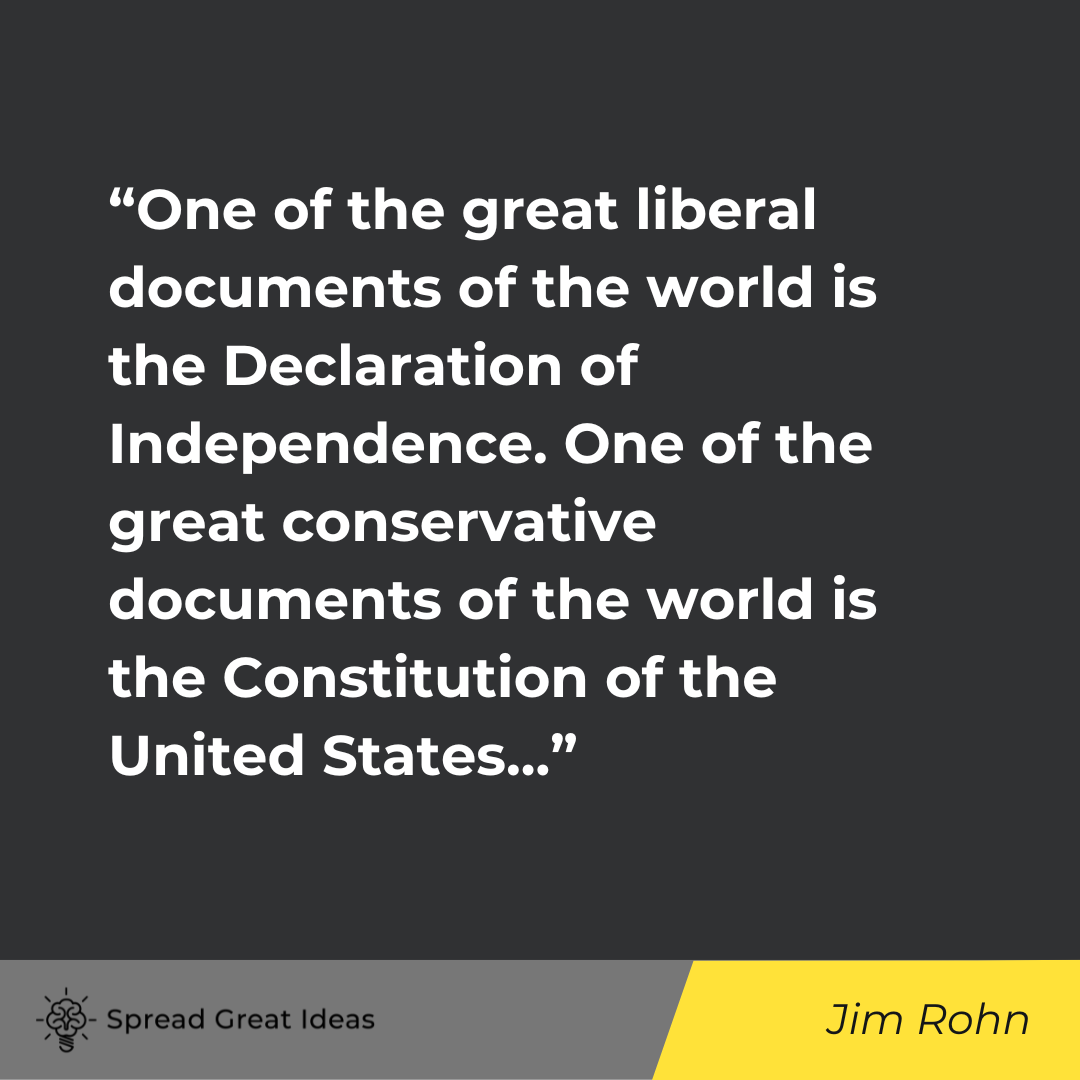
“One of the great liberal documents of the world is the Declaration of Independence. One of the great conservative documents of the world is the Constitution of the United States. We need both documents to build a country. One to get it started – liberal. And the other to help maintain the structure over the years – conservative.” – Jim Rohn
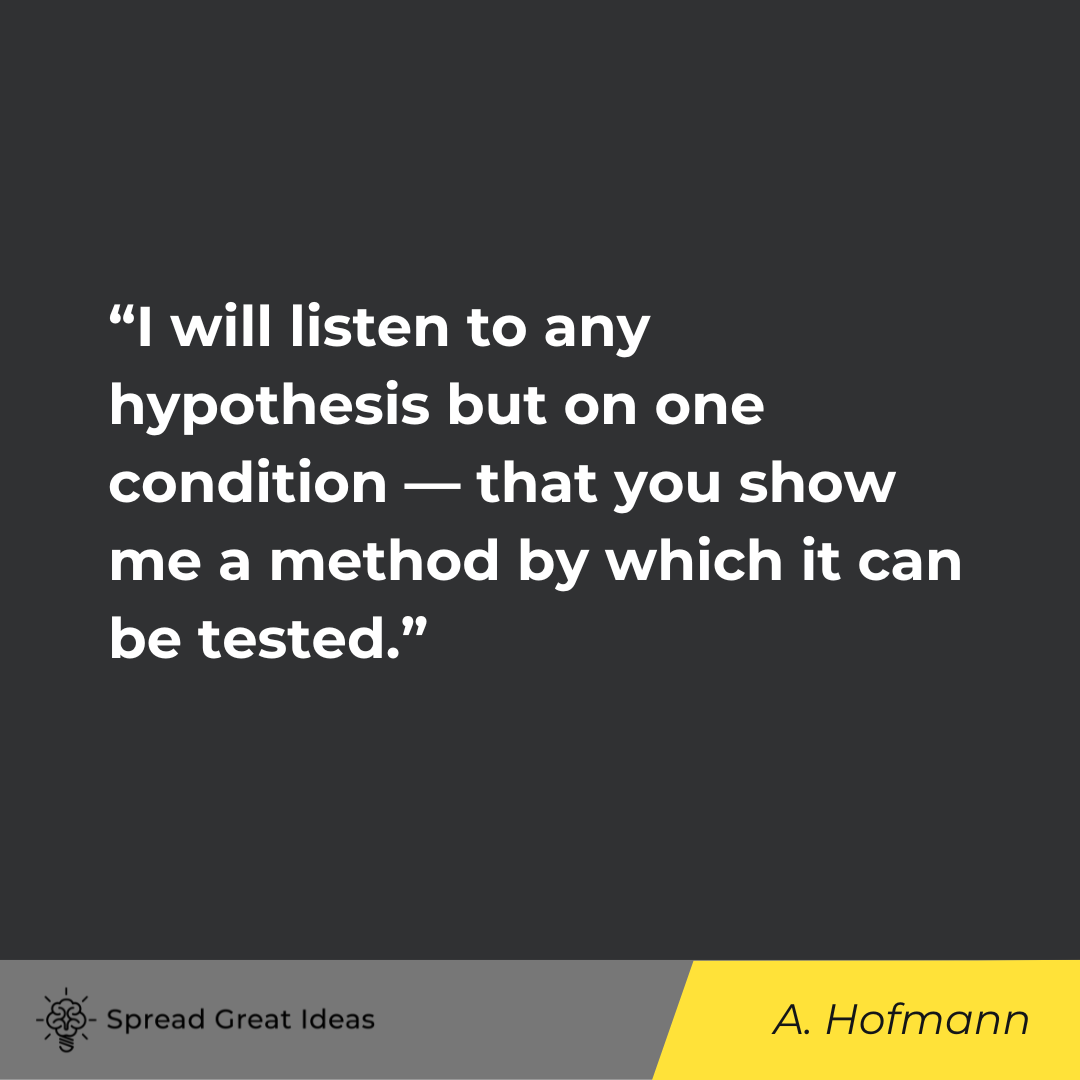
“I will listen to any hypothesis but on one condition — that you show me a method by which it can be tested.” – August Wilhelm von Hofmann
“You don’t have to burn books to destroy a culture. Just get people to stop reading them.” – Ray Bradbury
“We’re developing a new citizenry. One that will be very selective about cereals and automobiles, but won’t be able to think.” – Rod Serling
“It is the mark of an educated mind to be able to entertain a thought without accepting it.” – Aristotle
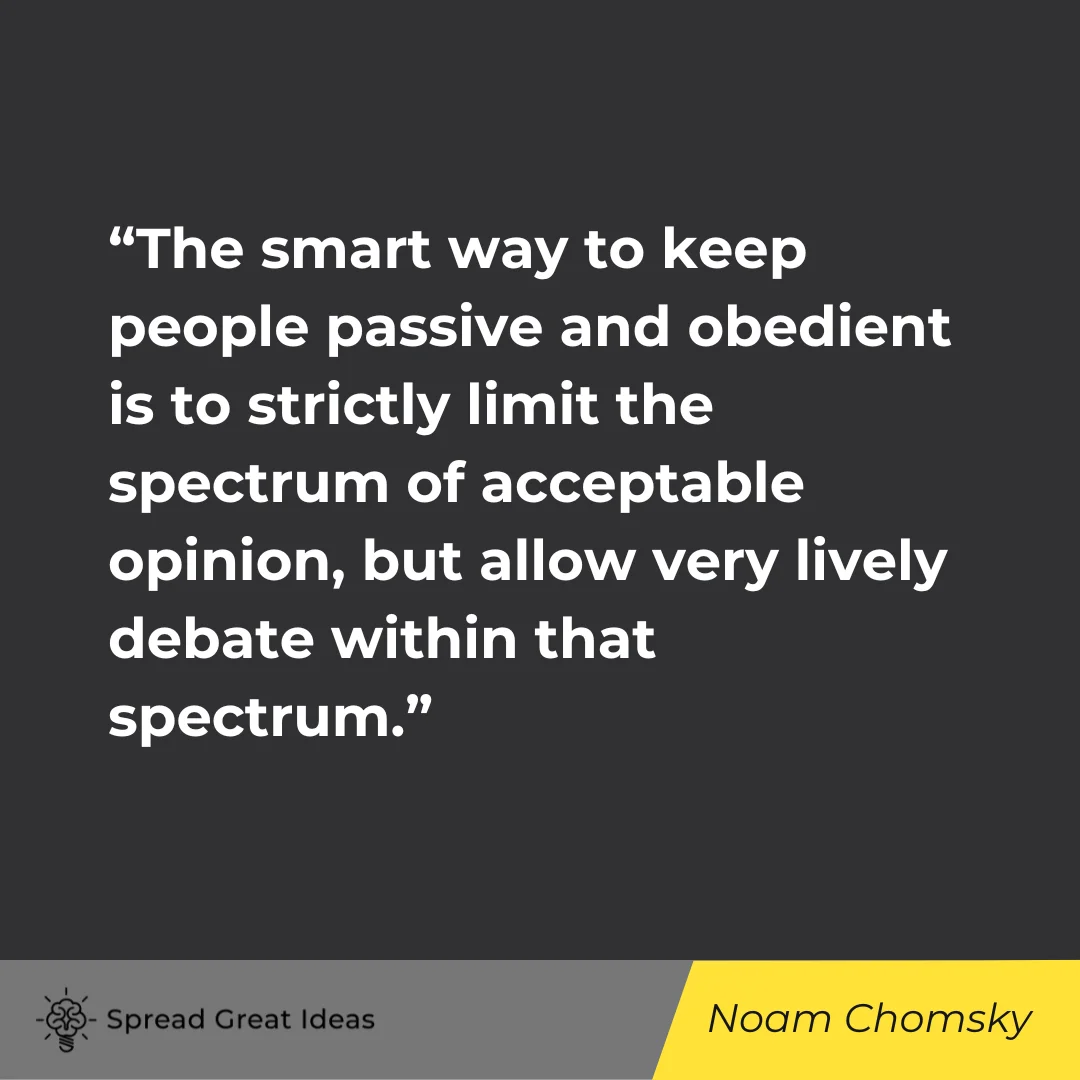
“The smart way to keep people passive and obedient is to strictly limit the spectrum of acceptable opinion, but allow very lively debate within that spectrum.” – Noam Chomsky
“People who are right most of the time are people who change their minds often.” – Jeff Bezos
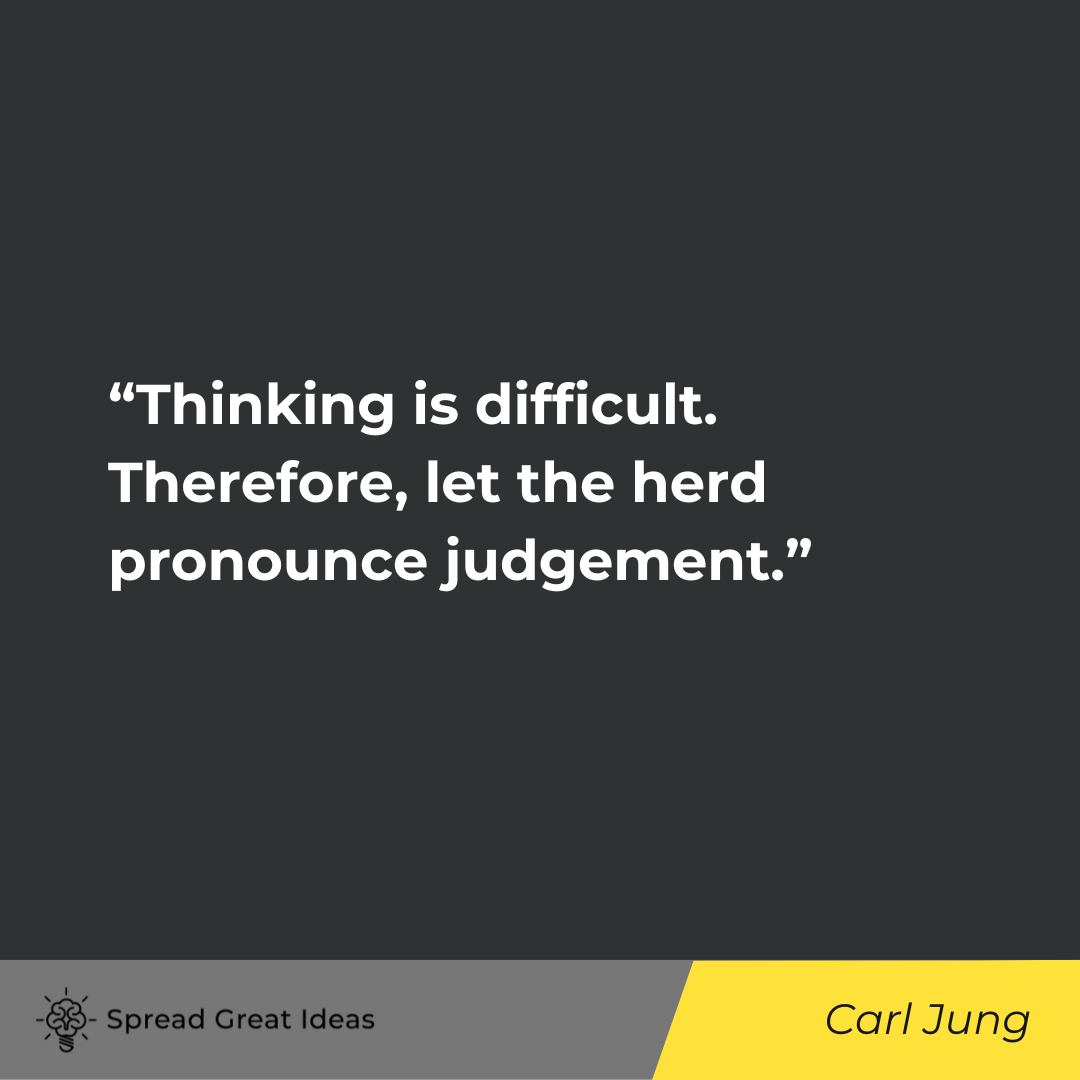
“…the relatively unconscious man driven by his natural impulses because, imprisoned in his familiar world, he clings to the commonplace, the obvious, the probable, the collectively valid, using for his motto: ‘Thinking is difficult. Therefore, let the herd pronounce judgement.'” – Carl Jung, Psychology and Religion: West and East
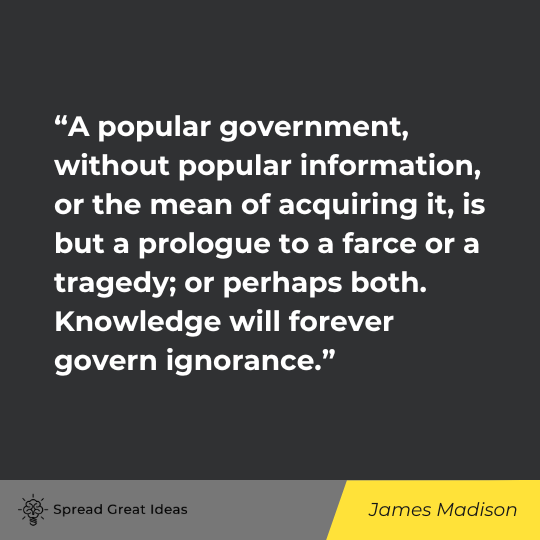
“A popular government, without popular information… is but a prologue to a farce or a tragedy.” — James Madison
“The basic tool for the manipulation of reality is the manipulation of words.”— Philip K. Dick
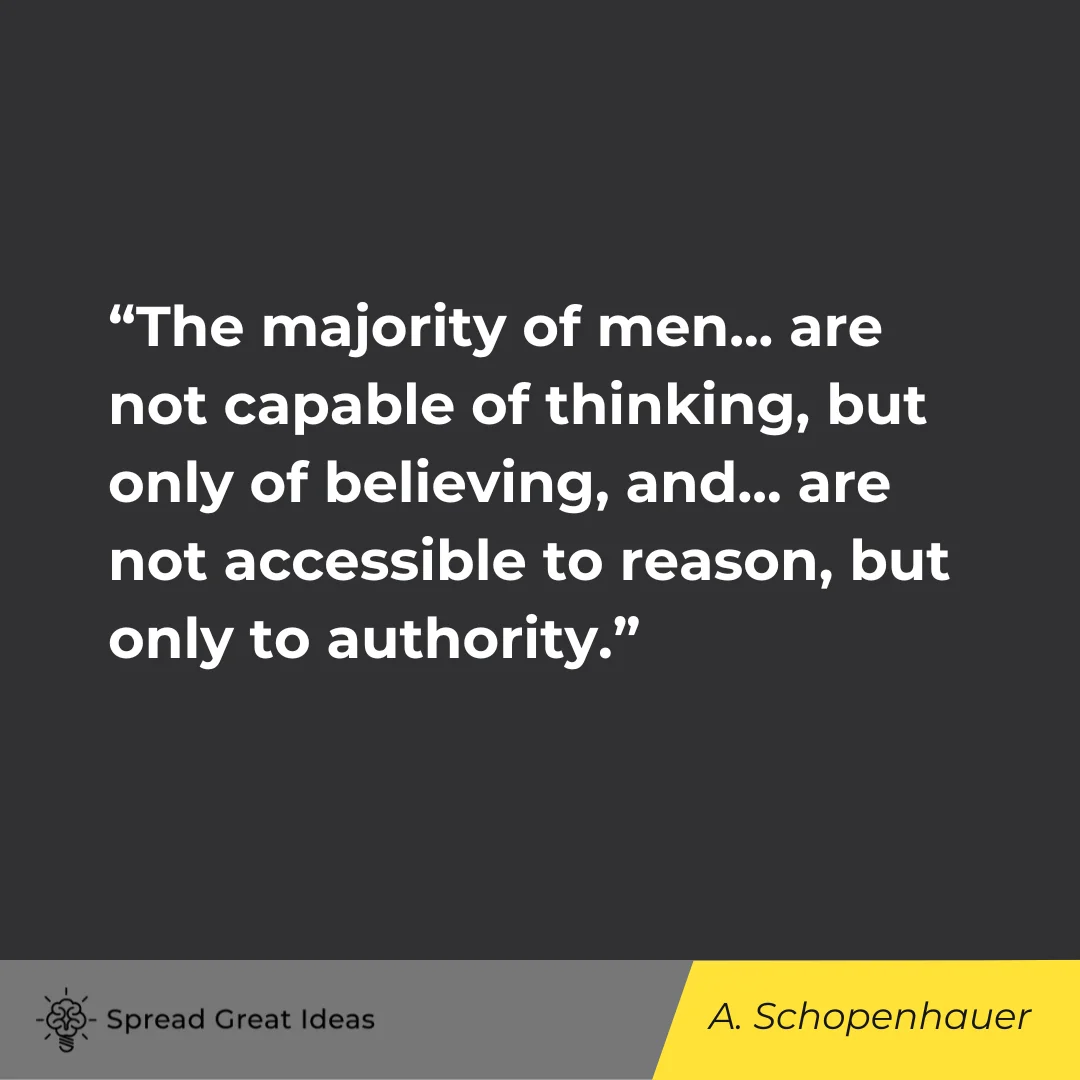
“The majority of men… are not capable of thinking, but only of believing, and… are not accessible to reason, but only to authority.” – Arthur Schopenhauer
“I think, therefore I am.” – René Descartes
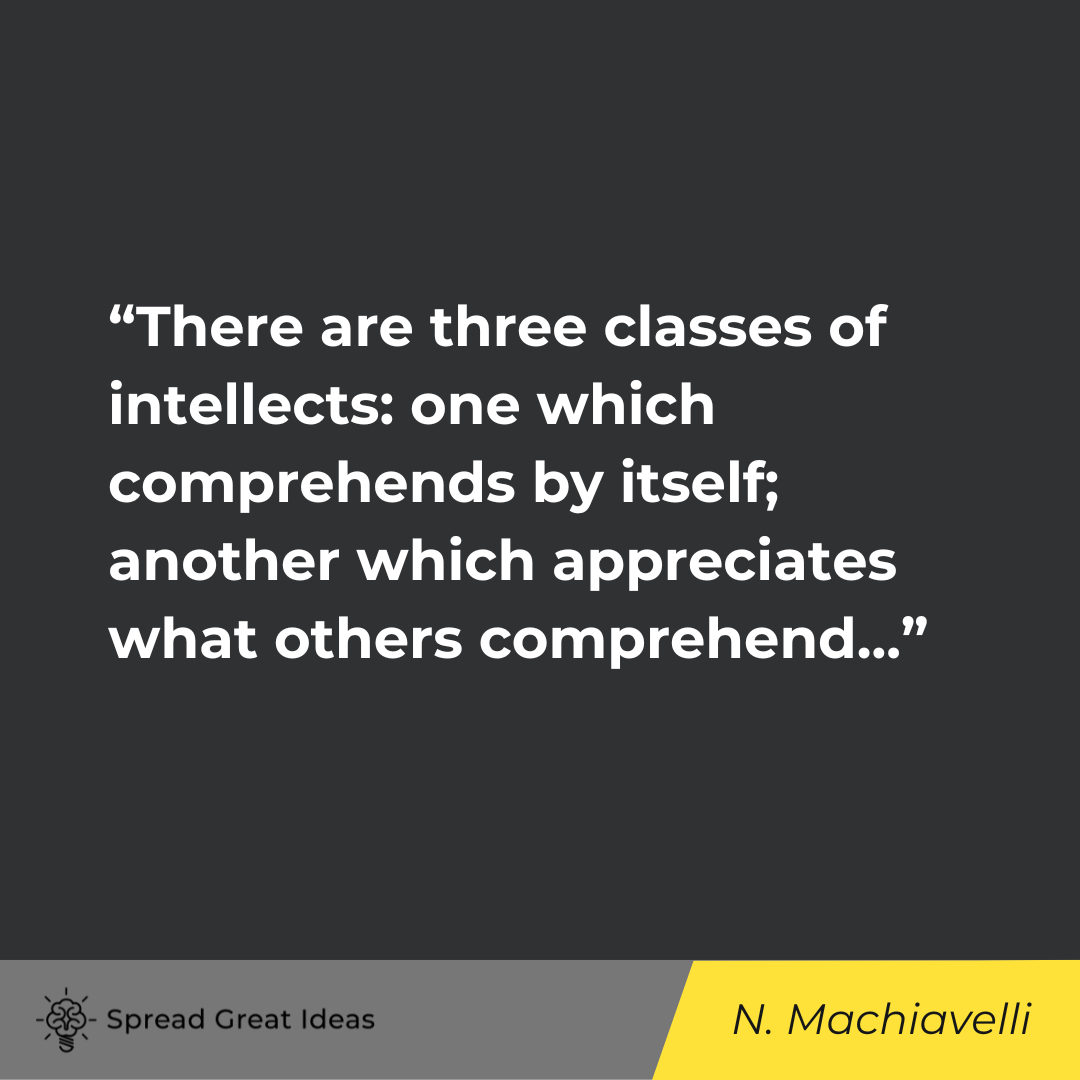
“There are three classes of intellects: one which comprehends by itself; another which appreciates what others comprehend; and a third which neither comprehends by itself nor by the showing of others; the first is the most excellent, the second is good, and the third is useless.” – Niccolò Machiavelli
“Whenever you find yourself on the side of the majority, it is time to pause and reflect.” – Mark Twain
“Progress is impossible without change, and those who cannot change their minds cannot change anything.” – George Bernard Shaw
“The evil that is in the world almost always comes of ignorance, and good intentions may do as much harm as malevolence if they lack understanding.” – Albert Camus
“Formal education will make you a living; self-education will make you a fortune.” – Jim Rohn

“The first duty of a man is to think for himself.” – Jose Marti
“I never allow myself to have an opinion on anything that I don’t know the other side’s argument better than they do.” – Charlie Munger
“Faced with the choice between changing one’s mind and proving that there is no need to do so, almost everybody gets busy on the proof.” – John Kenneth Galbraith

“We bombard people with sensation. That substitutes for thinking.” – Ray Bradbury
“Unthinking respect for authority is the greatest enemy of truth.” – Albert Einstein
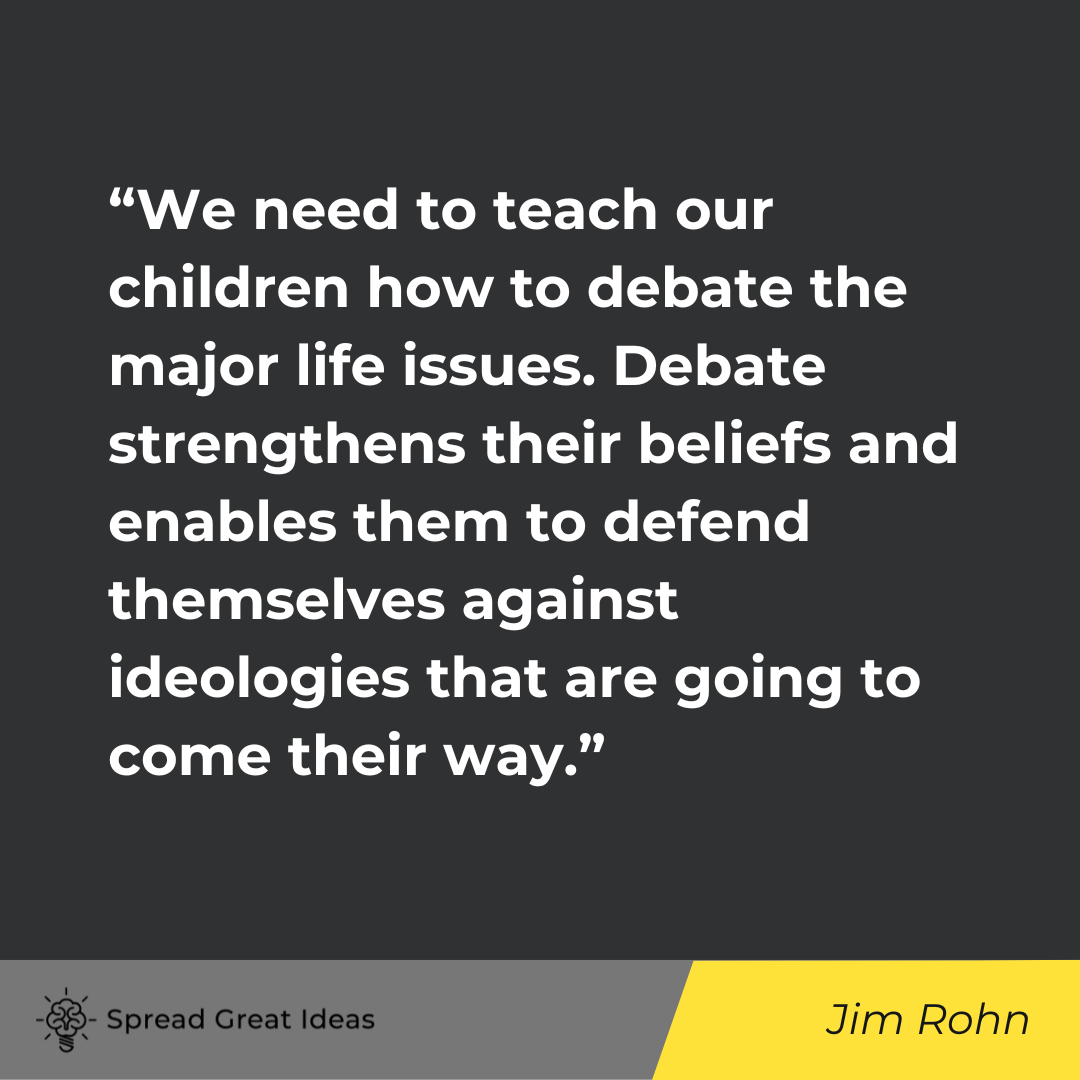
“We need to teach our children how to debate the major life issues. Debate strengthens their beliefs and enables them to defend themselves against ideologies that are going to come their way.” – Jim Rohn, The Treasury of Quotes
“An unexamined life is not worth living.” – Socrates
“In all affairs, it’s a healthy thing now and then to hang a question mark on the things you have long taken for granted.” – Bertrand Russell
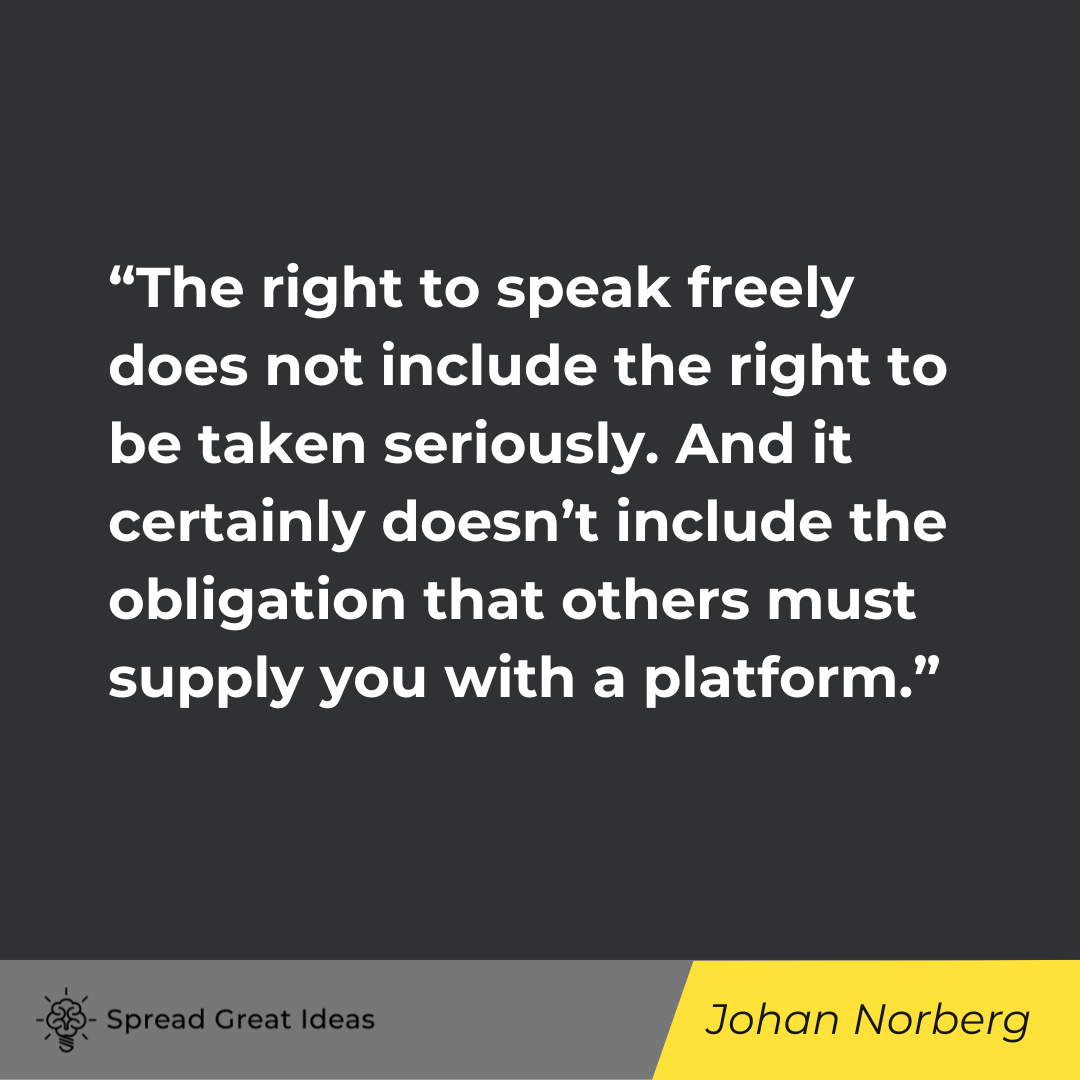
“The right to speak freely does not include the right to be taken seriously. And it certainly doesn’t include the obligation that others must supply you with a platform.” – Johan Norberg
Free Speech as the Foundation of a Thinking Society
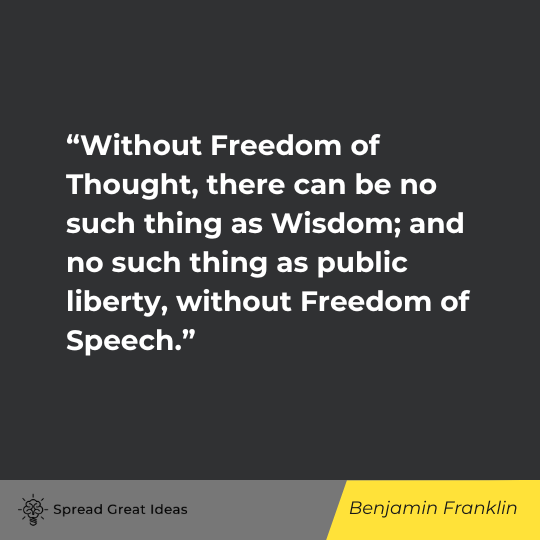
“Without Freedom of Thought, there can be no such thing as Wisdom; and no such thing as public liberty, without Freedom of Speech.” — Benjamin Franklin
“If liberty means anything at all, it means the right to tell people what they do not want to hear.” — George Orwell
“I disapprove of what you say, but I will defend to the death your right to say it.” – Evelyn Beatrice Hall
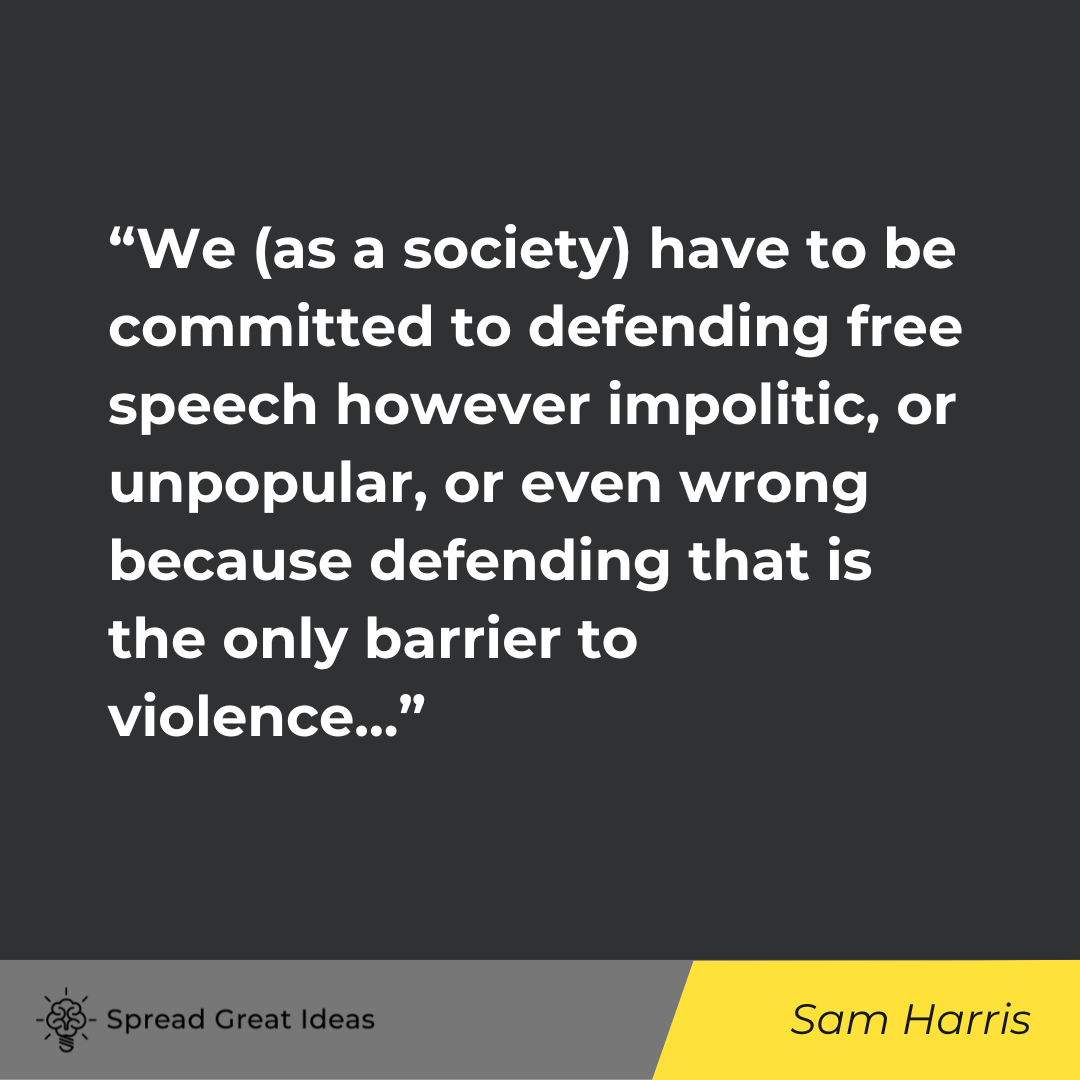
“We (as a society) have to be committed to defending free speech however impolitic, or unpopular, or even wrong because defending that is the only barrier to violence. That’s because the only way we can influence one another short of physical violence is thru speech, thru communicating ideas. The moment you say certain ideas can’t be communicated you create a circumstance where people have no alternative but to go hands on you.” – Sam Harris, Making Sense with Sam Harris, #67 – Meaning and Chaos
“Free speech is the whole thing, the whole ball game. Free speech is life itself.” — Salman Rushdie
“Freedom is the freedom to say that two plus two make four. If that is granted, all else follows.” – George Orwell
“To suppress free speech is a double wrong. It violates the rights of the hearer as well as those of the speaker.” – Frederick Douglass
“The freedom of Speech may be taken away, and, dumb and silent, we may be led, like sheep, to the Slaughter.” — George Washington
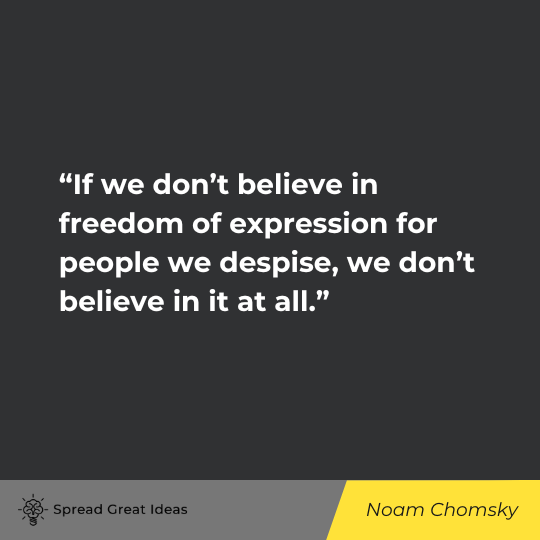
“If we don’t believe in freedom of expression for people we despise, we don’t believe in it at all.” — Noam Chomsky
“Proclaim the truth and do not be silent through fear.” — St. Catherine of Siena
“This is slavery, not to speak one’s thought.” — Euripides
“Whoever would overthrow the liberty of a nation must begin by subduing the freeness of speech.” – Benjamin Franklin
Legal Wisdom on the Role of Speech in a Free Democracy
“The remedy to be applied is more speech, not enforced silence.” — Louis Brandeis

“A popular government, without popular information… is but a prologue to a farce or a tragedy.” — James Madison

“Only a free and unrestrained press can effectively expose deception in government.” – Supreme Court Justice Hugo Black
“If there is any fixed star in our constitutional constellation… it is that no official… can prescribe what shall be orthodox.” — Robert H. Jackson
“The right to think is the beginning of freedom, and speech must be protected… because speech is the beginning of thought.” — Anthony M. Kennedy
When Critical Thought Challenges Power
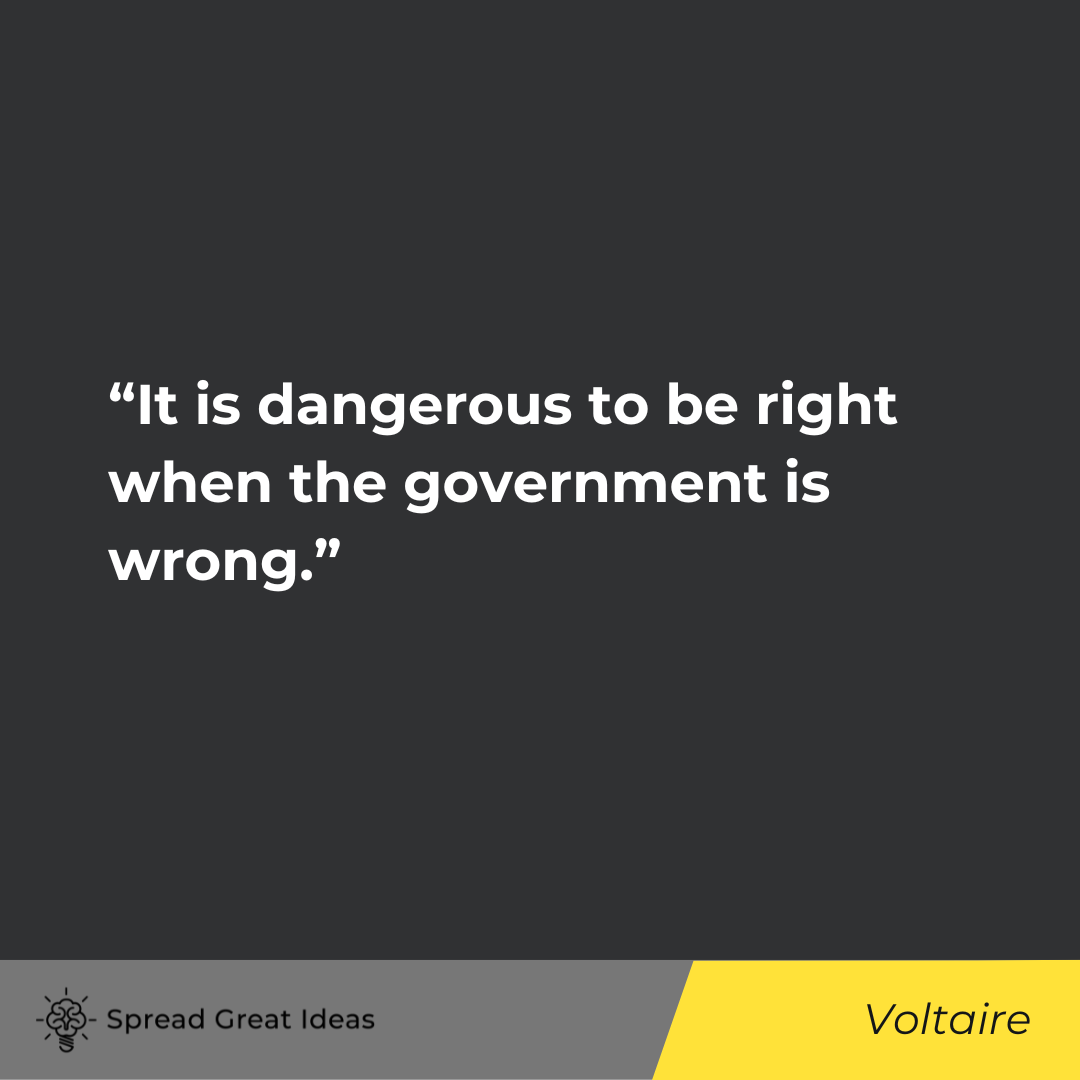
“It is dangerous to be right when the government is wrong.” – Voltaire
“All truth passes through three stages. First, it is ridiculed. Second, it is violently opposed. Third, it is accepted as being self-evident.” – Arthur Schopenhauer
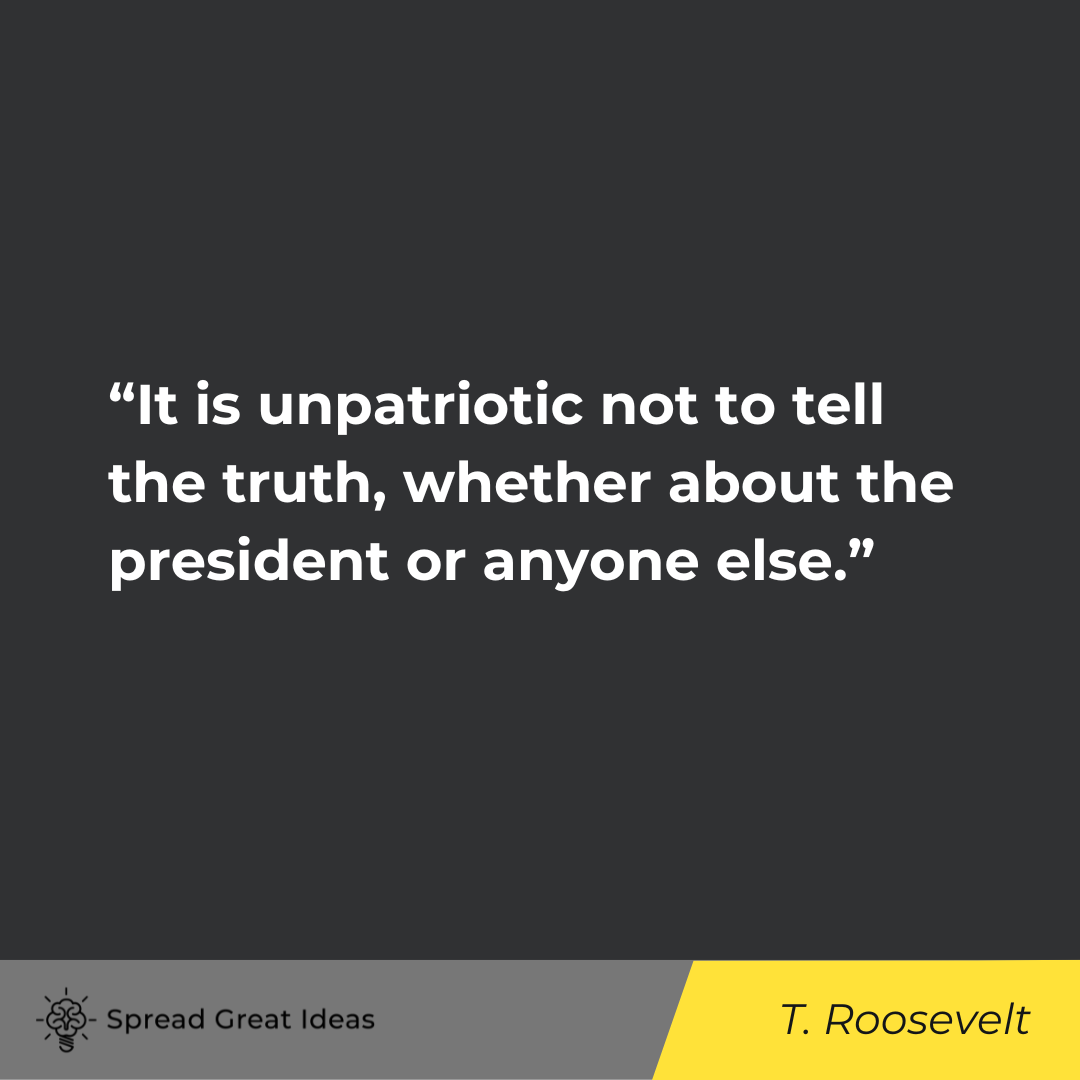
“It is unpatriotic not to tell the truth, whether about the president or anyone else.” – Theodore Roosevelt
“The welfare of the people in particular has always been the alibi of tyrants.” – Albert Camus
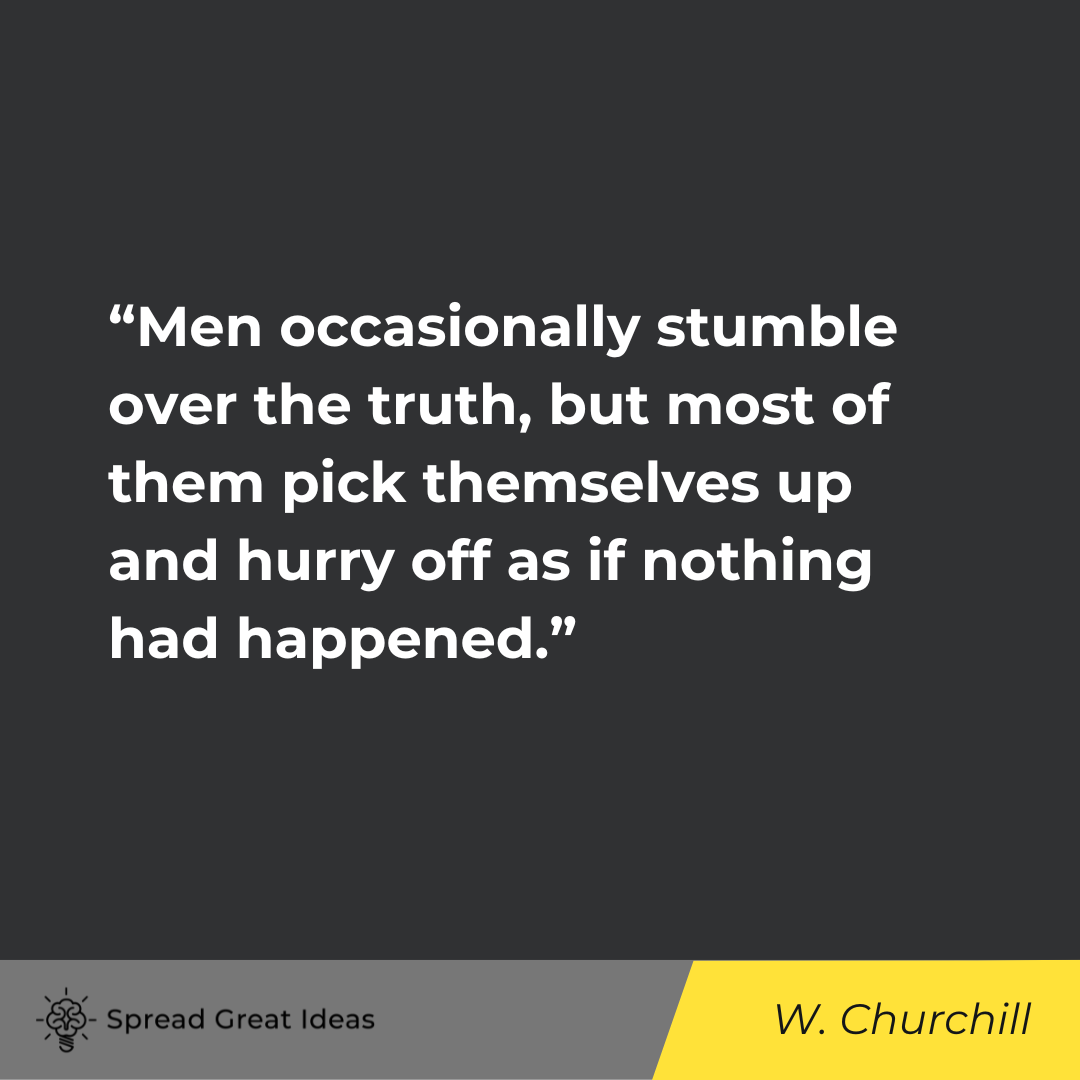
“Men occasionally stumble over the truth, but most of them pick themselves up and hurry off as if nothing had happened.” – Winston Churchill
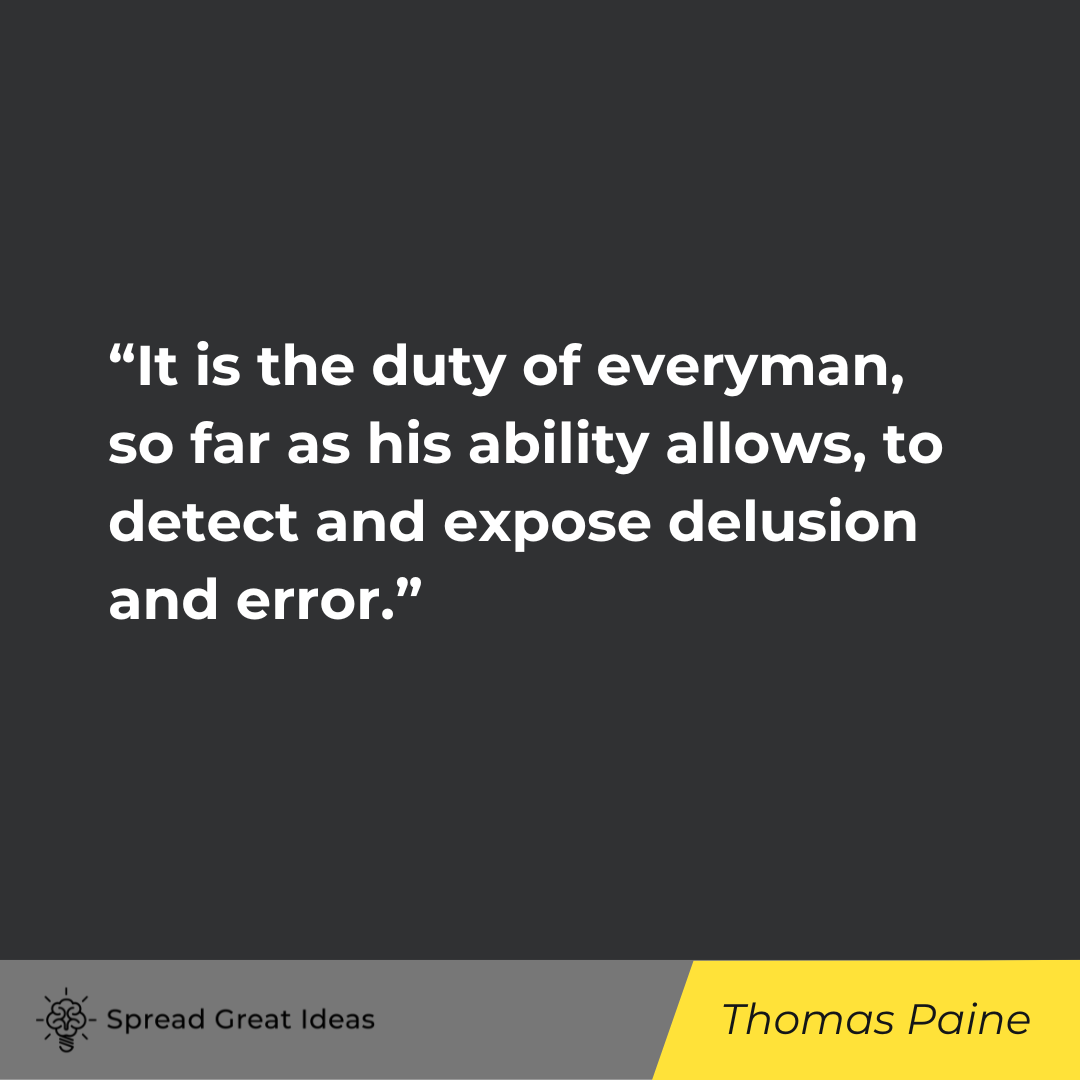
“It is the duty of everyman, so far as his ability allows, to detect and expose delusion and error.” – Thomas Paine
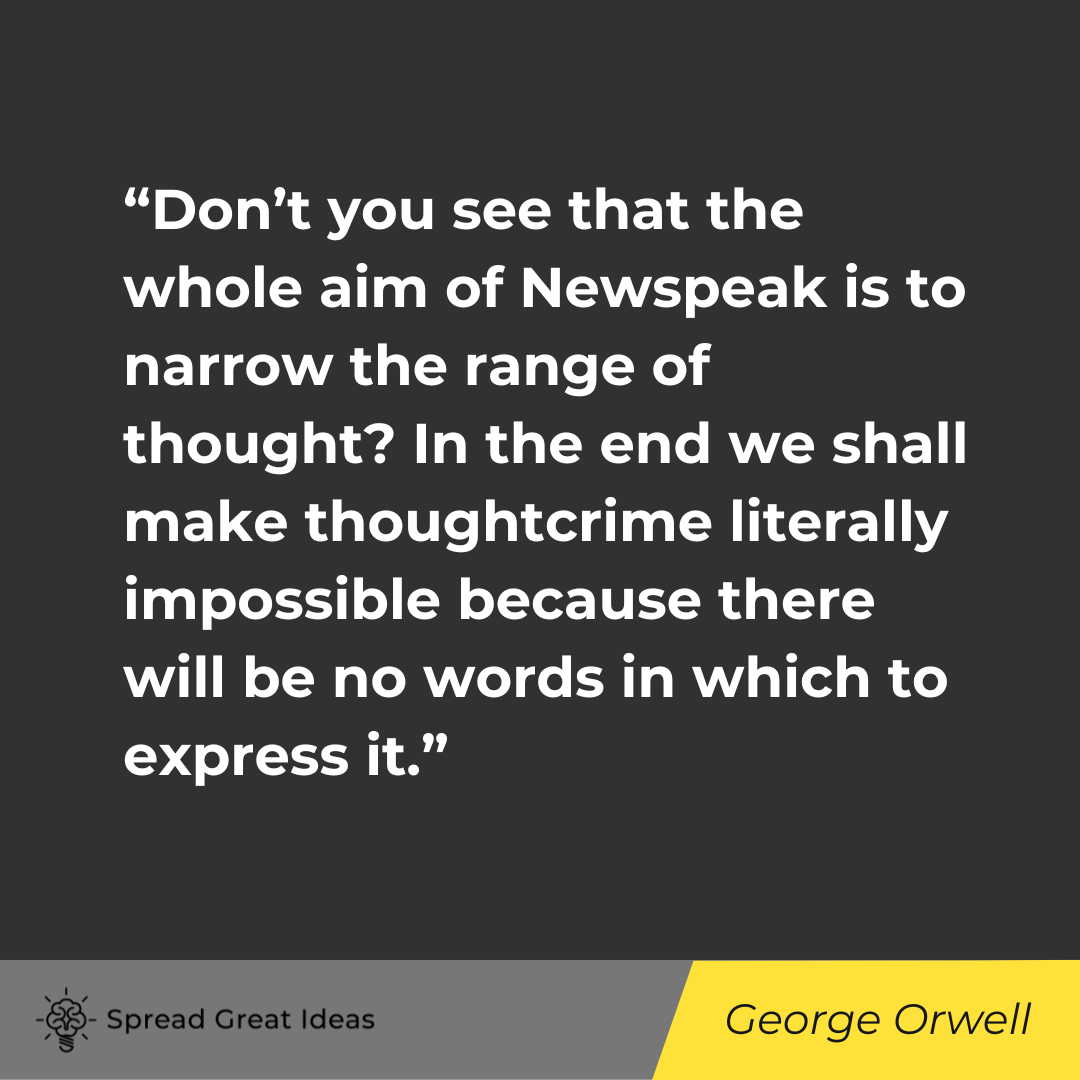
“Don’t you see that the whole aim of Newspeak is to narrow the range of thought? In the end we shall make thoughtcrime literally impossible because there will be no words in which to express it.” – George Orwell, 1984
“The vulgar crowd always is taken by appearances, and the world consists chiefly of the vulgar.” – Niccolò Machiavelli
“The first step in the evolution of ethics is a sense of solidarity with other human beings.” – Albert Camus
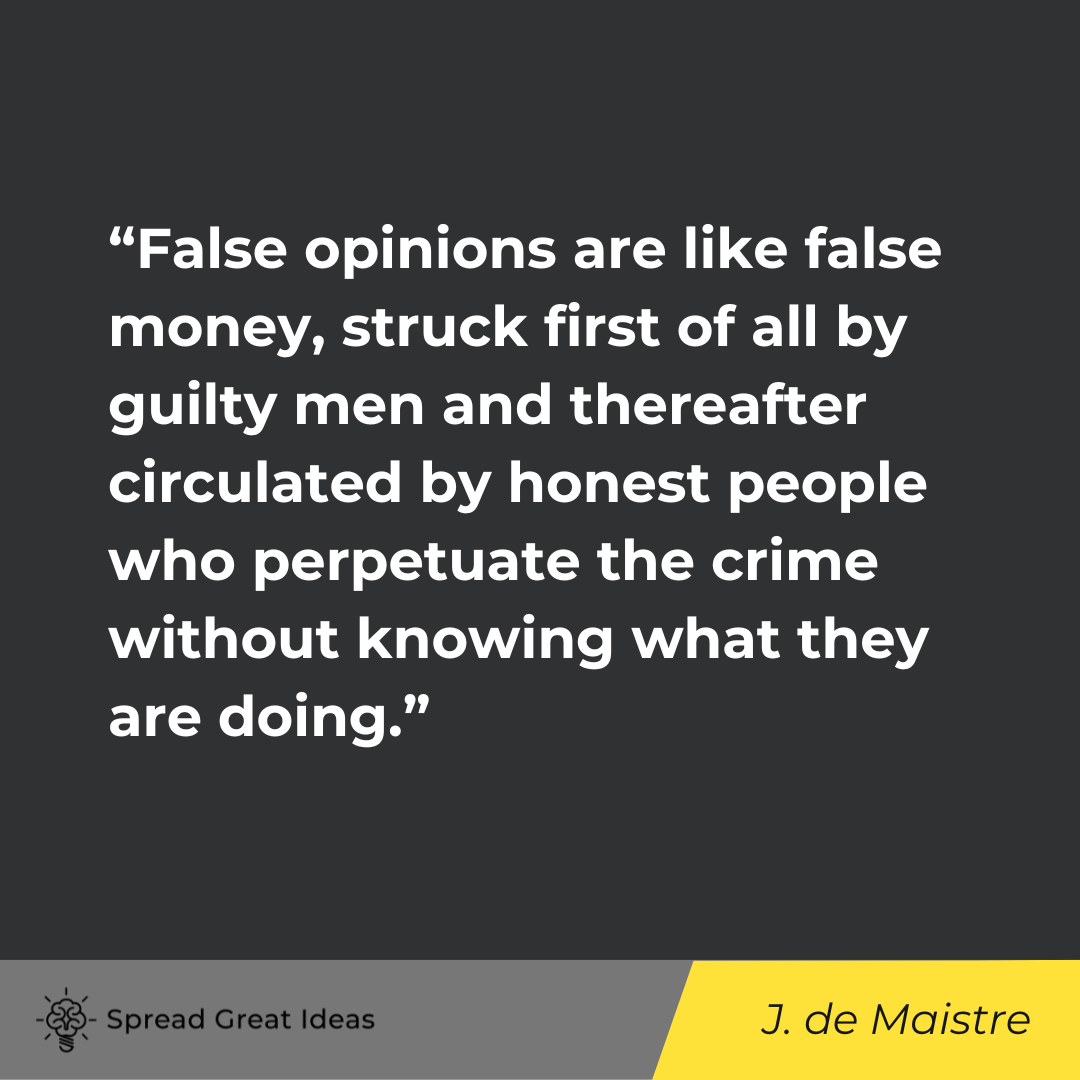
“False opinions are like false money, struck first of all by guilty men and thereafter circulated by honest people who perpetuate the crime without knowing what they are doing.” – Joseph de Maistre
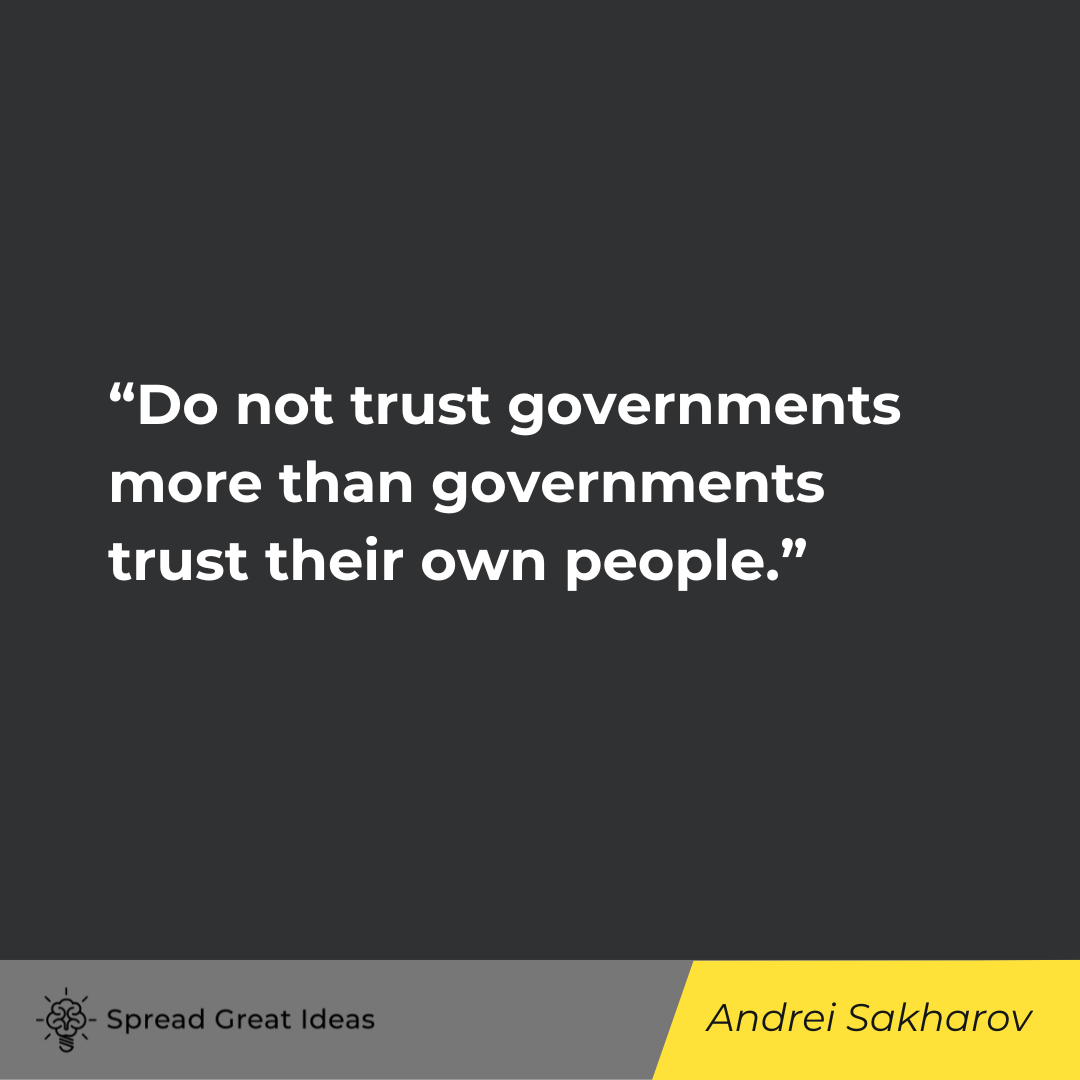
“Do not trust governments more than governments trust their own people.” – Andrei Sakharov
“Those who can make you believe absurdities can make you commit atrocities.” – Voltaire
“You can discover what your enemy fears most by observing the means he uses to frighten you.” – Eric Hoffer
“To argue with a man who has renounced the use and authority of reason is like administering medicine to the dead.” – Thomas Paine
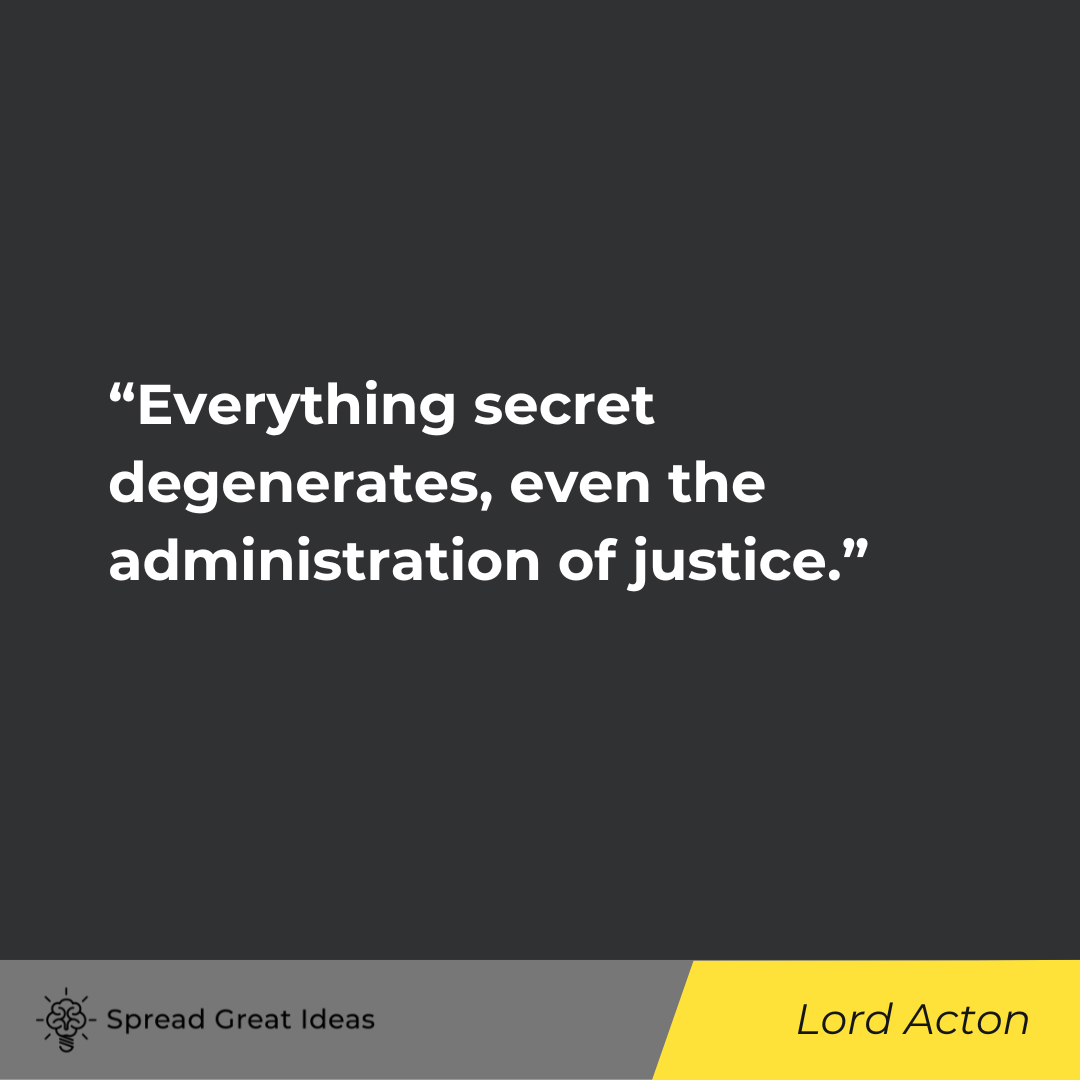
“Everything secret degenerates, even the administration of justice.” – Lord Acton
“The worth of a state in the long run is the worth of the individuals composing it.” – John Stuart Mill
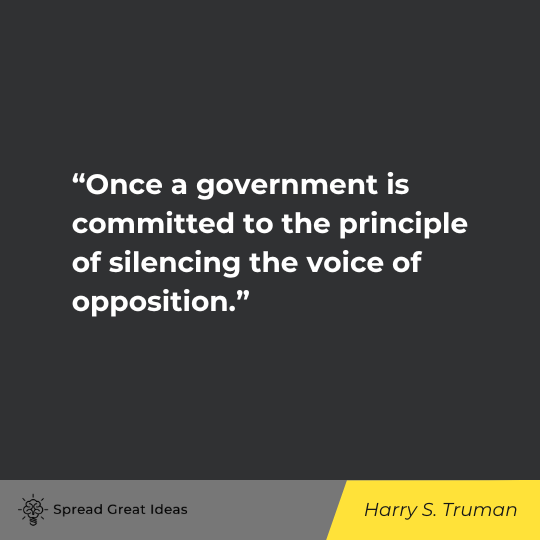
“Once a government is committed to the principle of silencing the voice of opposition… it creates a country where everyone lives in fear.” — Harry S. Truman
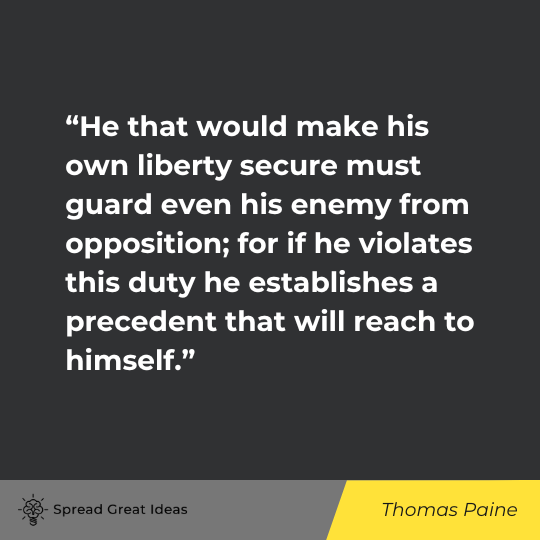
“He that would make his own liberty secure must guard even his enemy from opposition…” — Thomas Paine
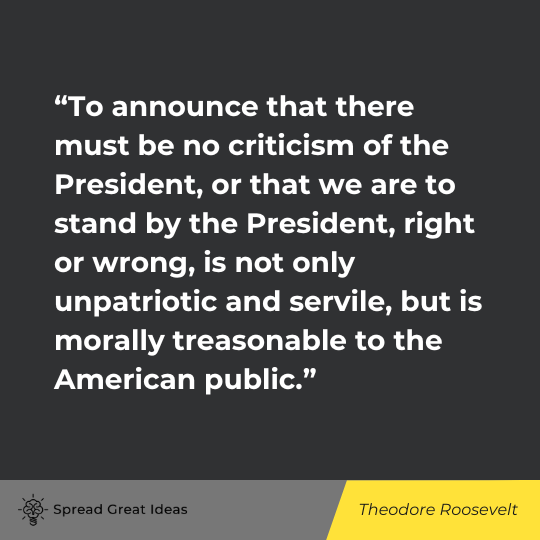
“To announce that there must be no criticism of the President… is morally treasonable to the American public.” — Theodore Roosevelt
Wit, Warnings, and Mic-Drop Moments on Thought and Speech
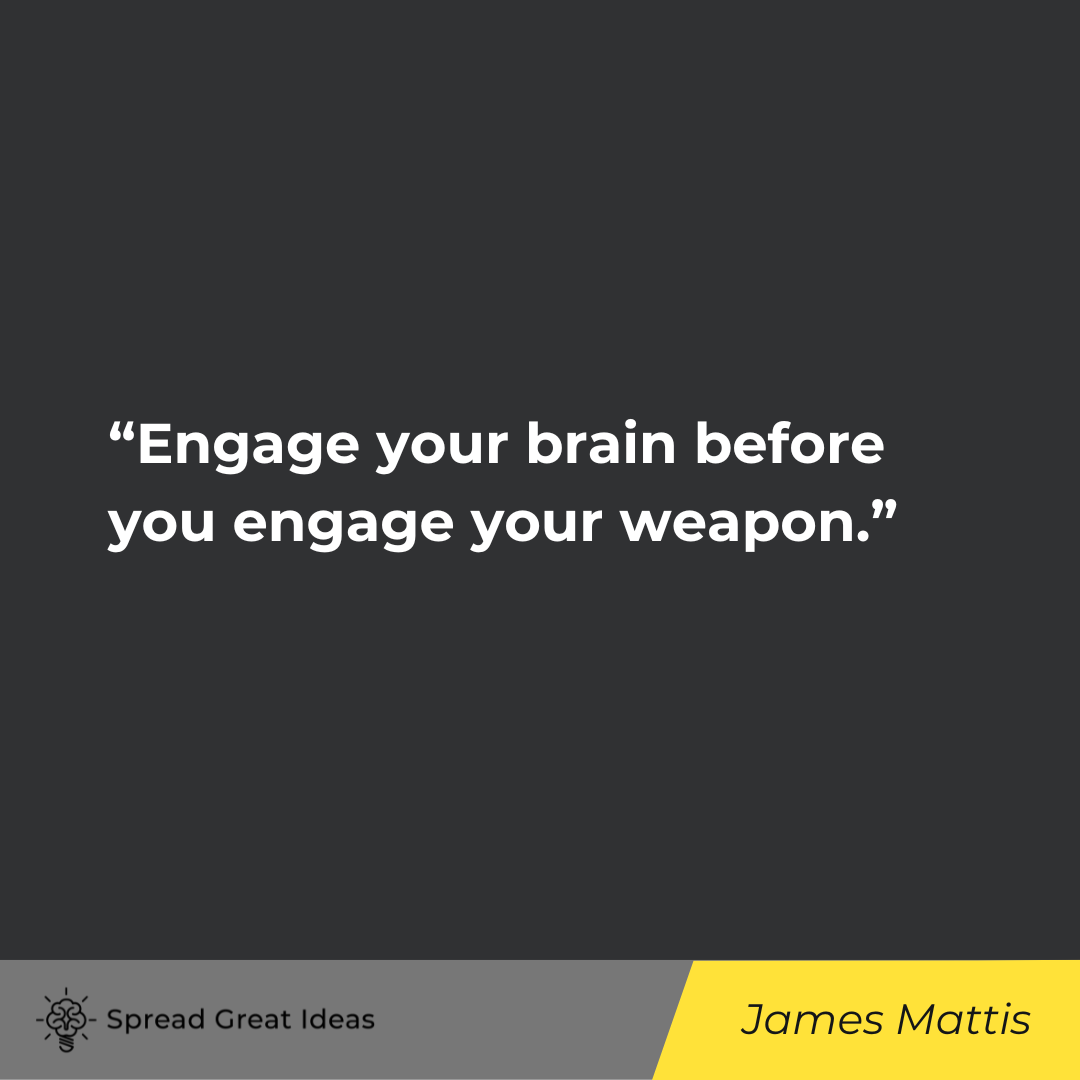
“Engage your brain before you engage your weapon.” – General James Mattis
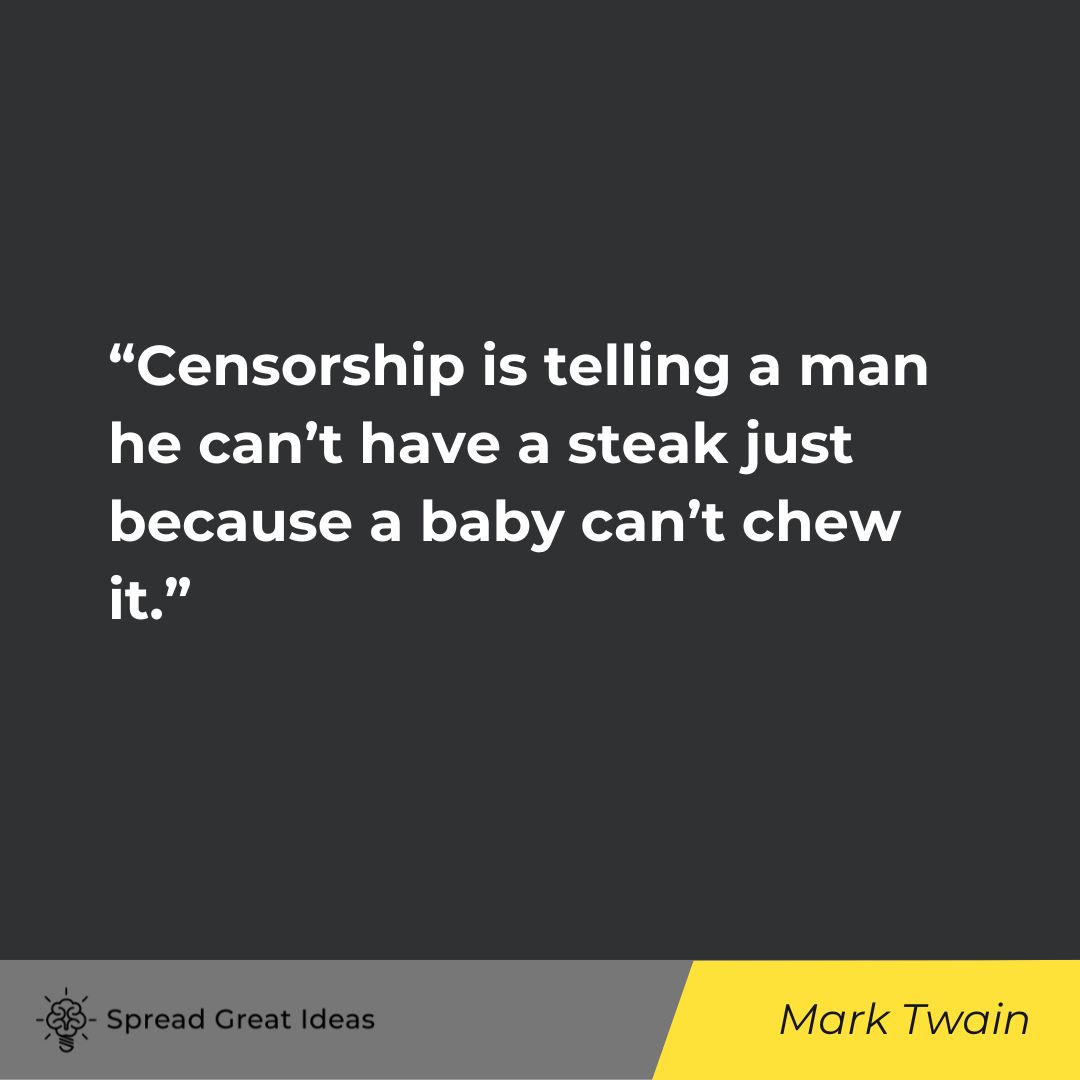
“Censorship is telling a man he can’t have a steak just because a baby can’t chew it.” – Mark Twain
“The propagandist’s purpose is to make one set of people forget that certain other sets of people are human.” – Aldous Huxley
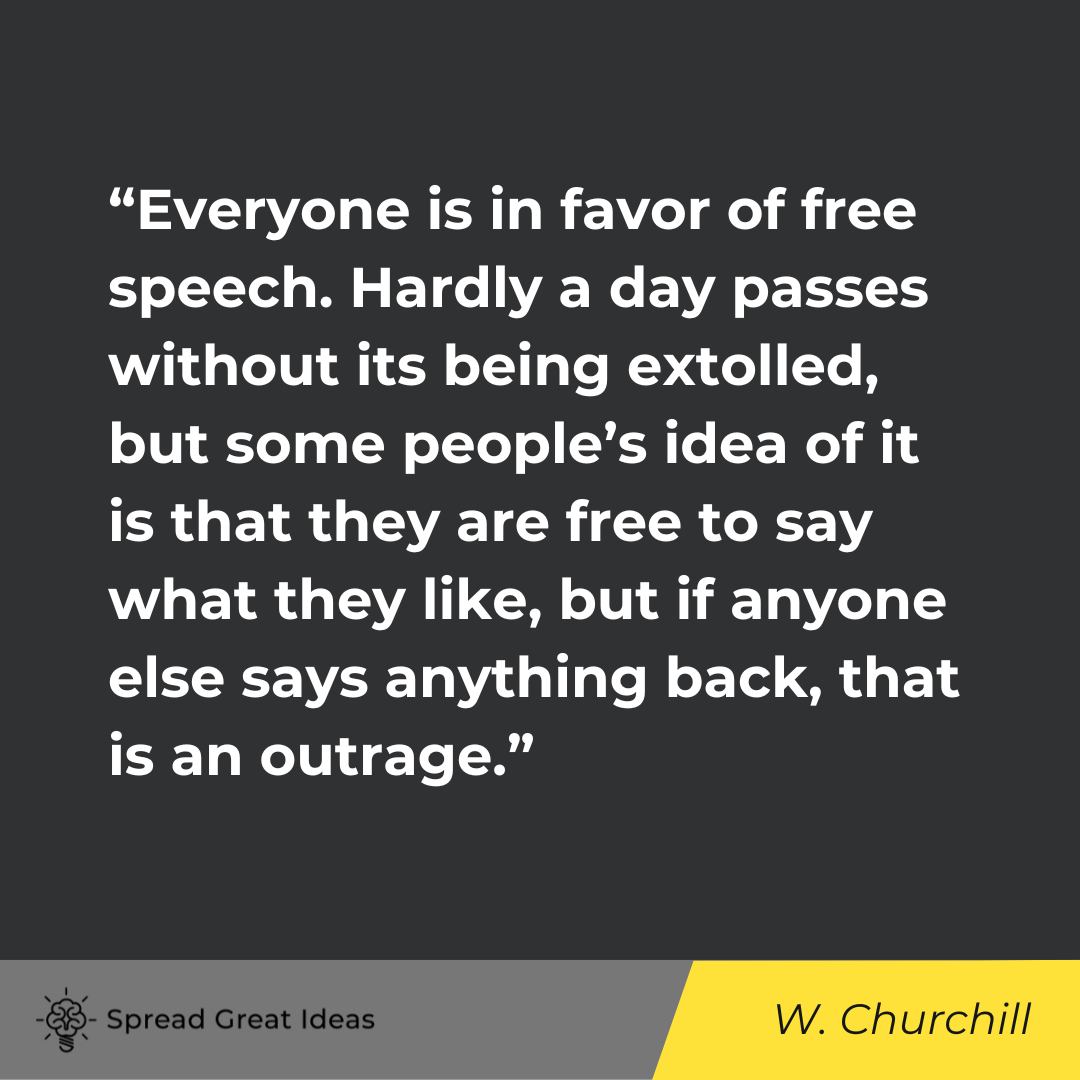
“Everyone is in favor of free speech. Hardly a day passes without its being extolled, but some people’s idea of it is that they are free to say what they like, but if anyone else says anything back, that is an outrage.” – Winston Churchill
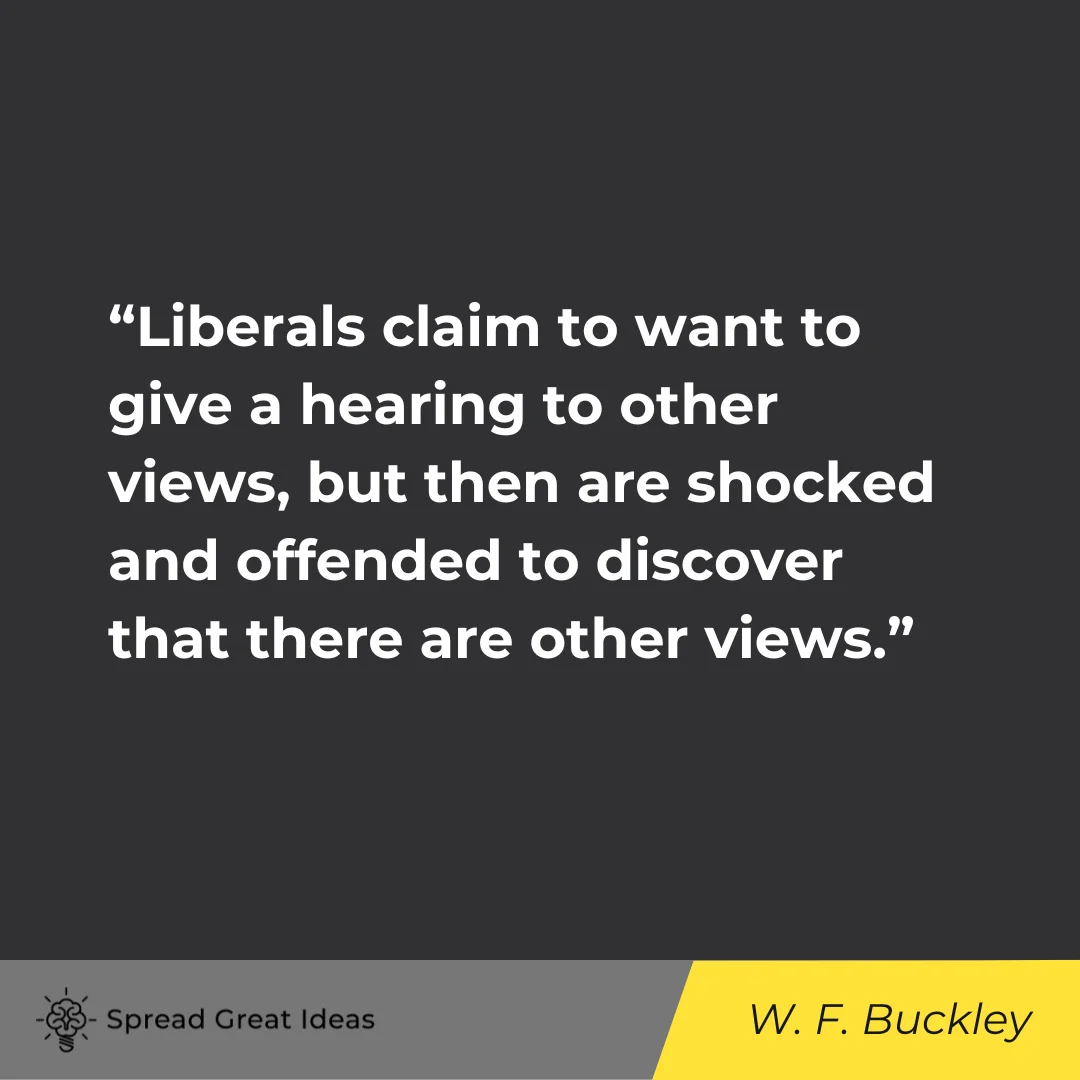
“Liberals claim to want to give a hearing to other views, but then are shocked and offended to discover that there are other views.” – William F. Buckley
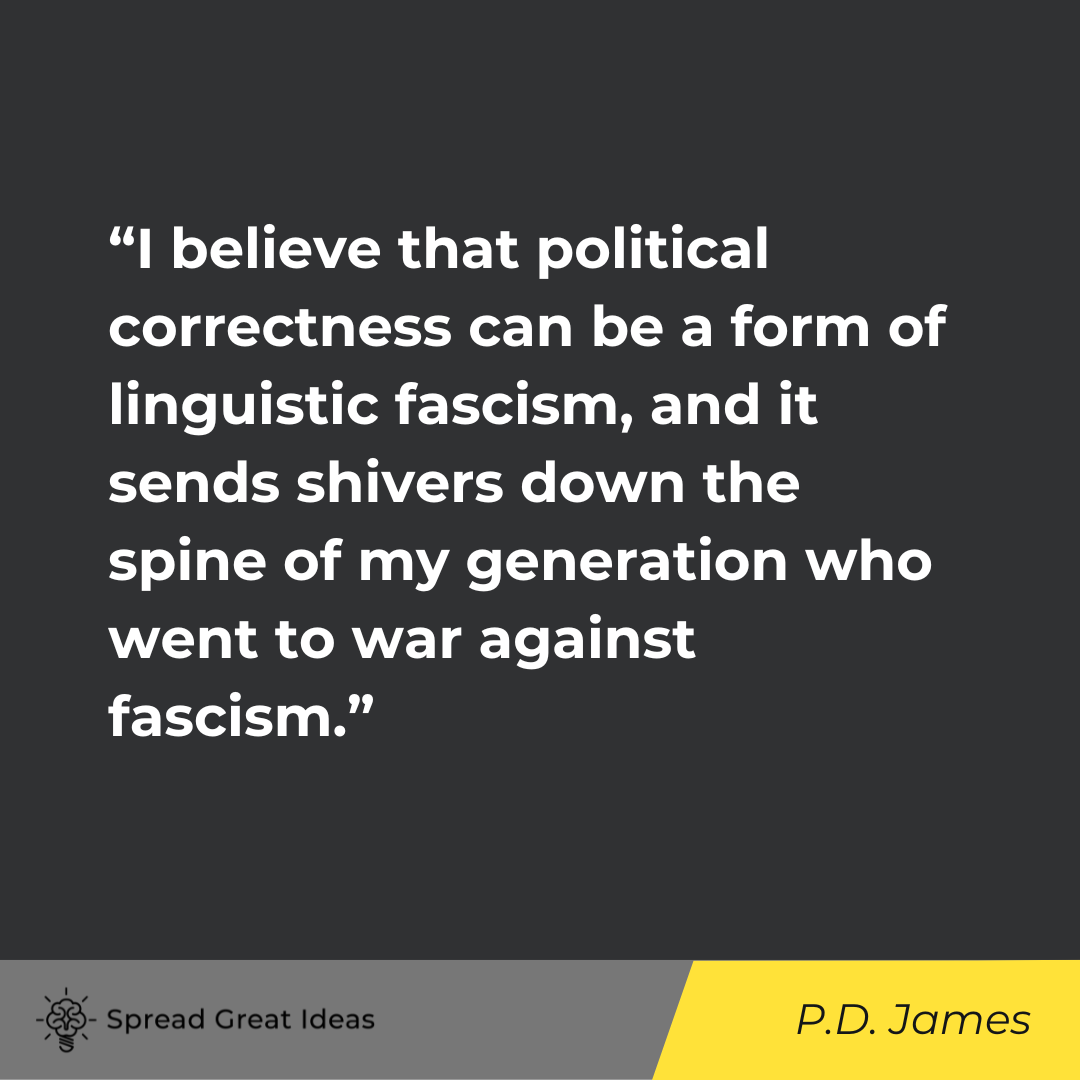
“I believe that political correctness can be a form of linguistic fascism, and it sends shivers down the spine of my generation who went to war against fascism.” – P.D. James
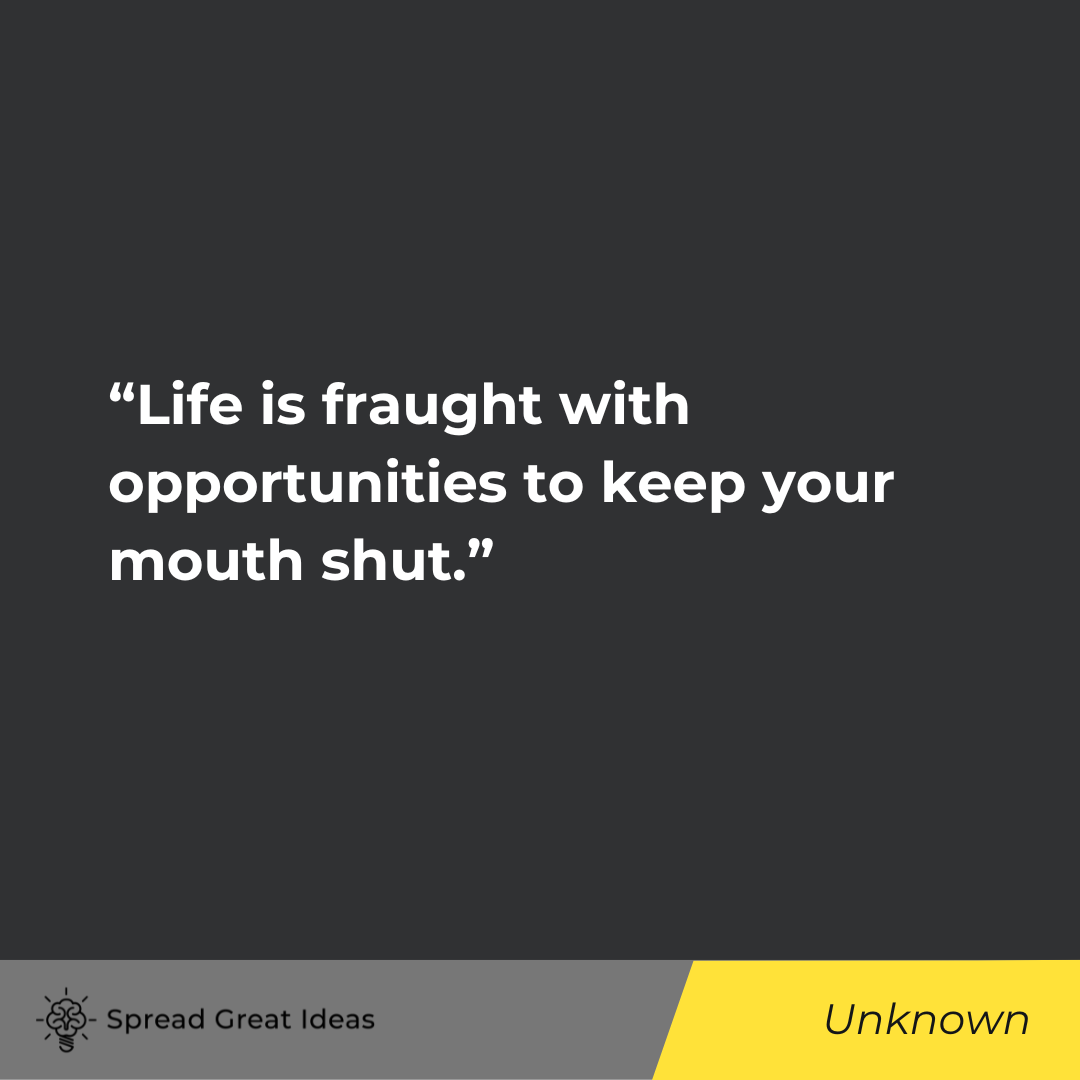
“Life is fraught with opportunities to keep your mouth shut.” – Unknown, often misattributed to Winston Churchill
“Even a broken clock is right twice a day.” – Unknown
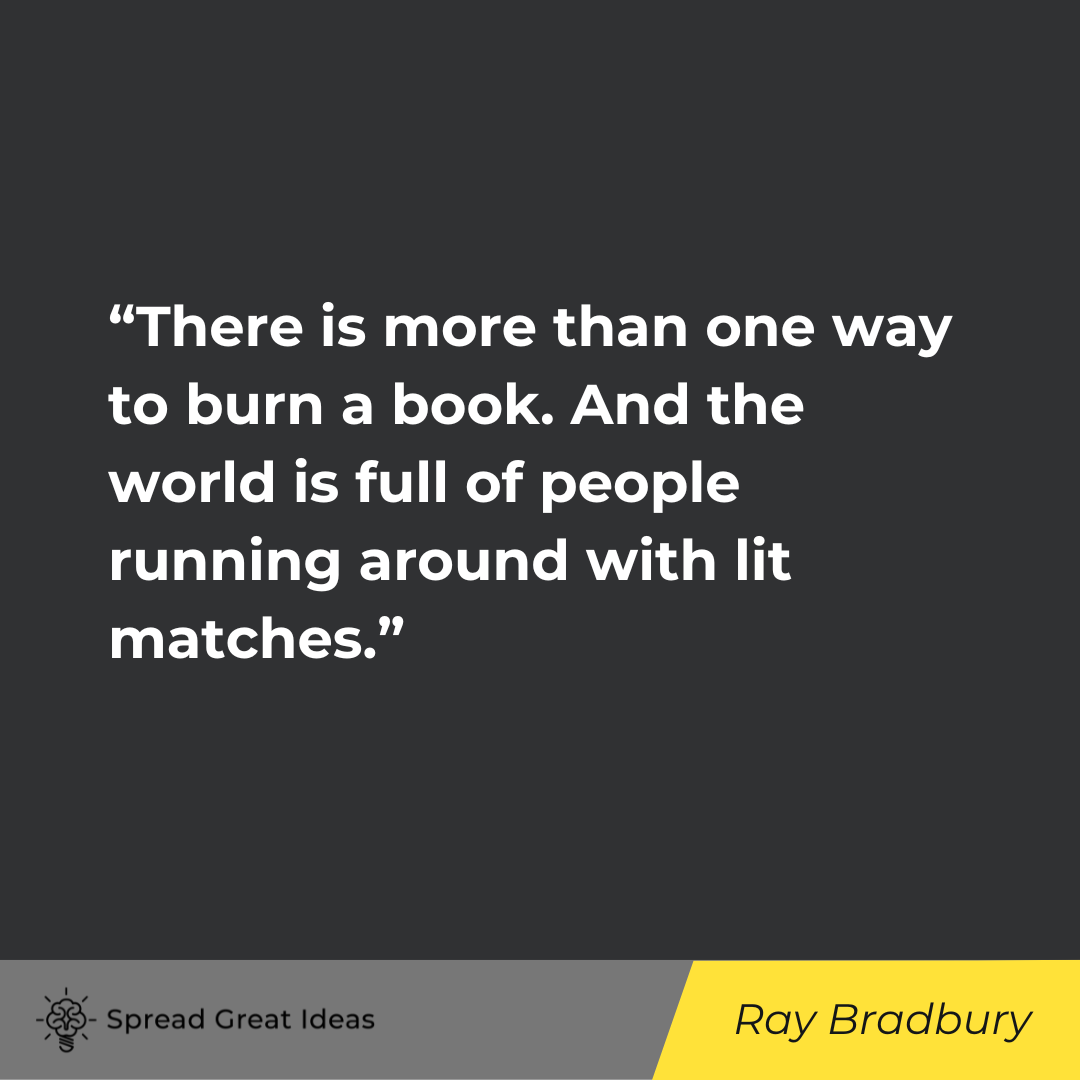
“There is more than one way to burn a book. And the world is full of people running around with lit matches.” – Ray Bradbury
“I may not agree with you, but I will defend to the death your right to make an ass of yourself.” — Oscar Wilde
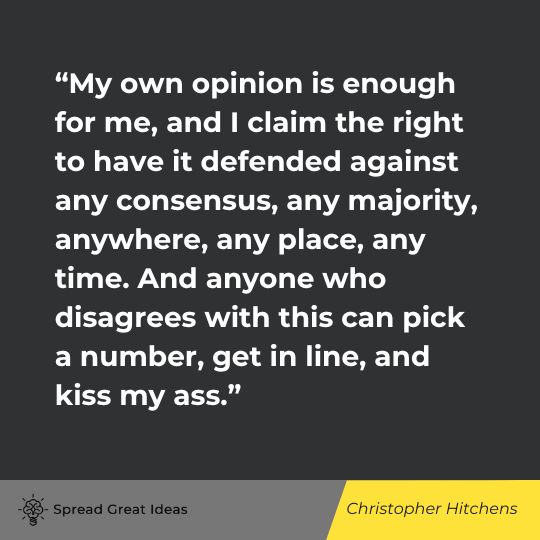
“My own opinion is enough for me, and I claim the right to have it defended against any consensus, any majority, anywhere, any place, any time. And anyone who disagrees with this can pick a number, get in line, and kiss my ass.” — Christopher Hitchens
“Because if you don’t stand up for the stuff you don’t like, when they come for the stuff you do like, you’ve already lost.” — Neil Gaiman
“Political correctness is tyranny; just tyranny with manners.” — Charlton Heston
Why You Must Keep Thinking for Yourself

“The smart way to keep people passive and obedient is to strictly limit the spectrum of acceptable opinion, but allow very lively debate within that spectrum.” – Noam Chomsky
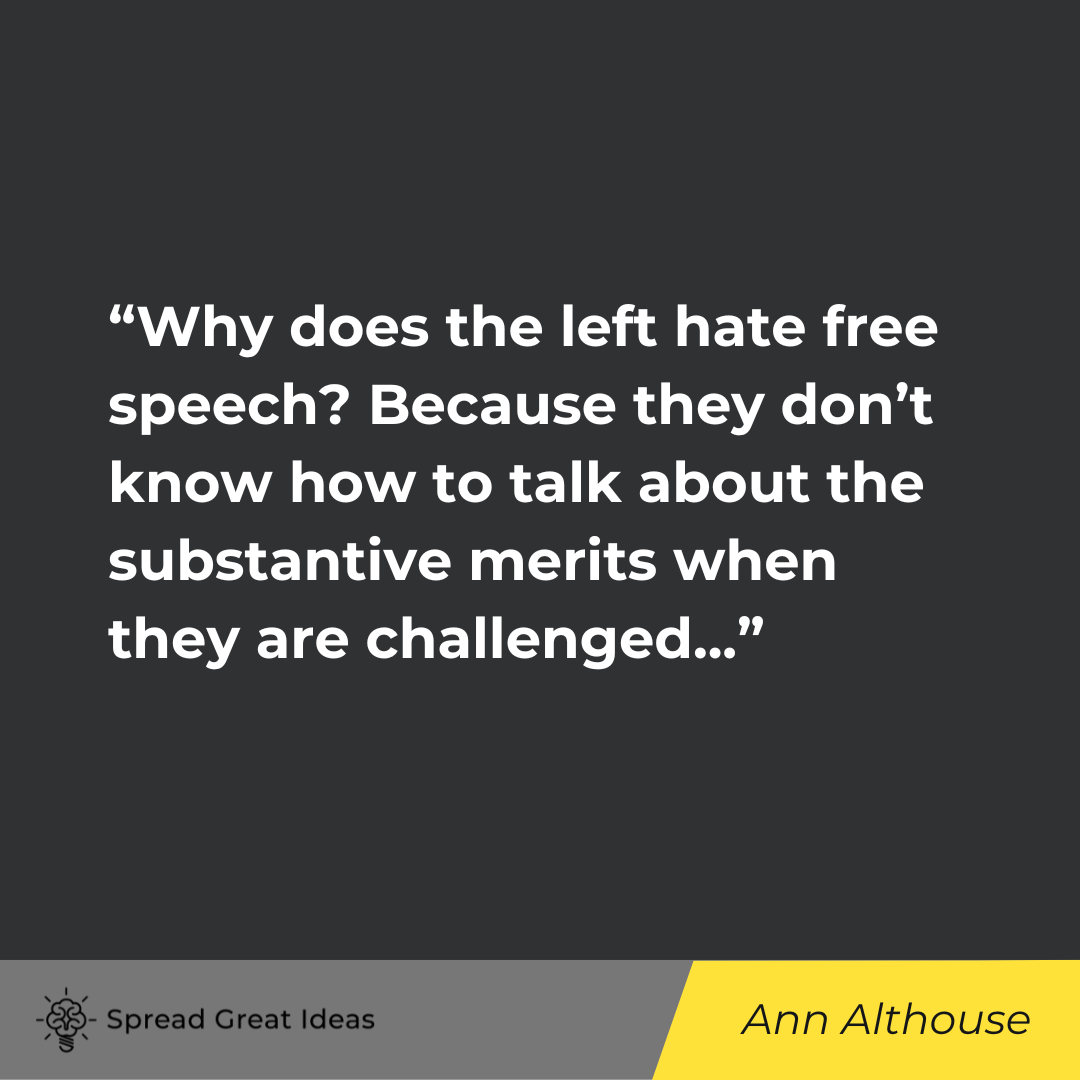
“Why does the left hate free speech? Because they don’t know how to talk about the substantive merits when they are challenged. Having submerged themselves in disciplining each other by denouncing any heretics in their midst, they find themselves overwhelmed and outnumbered in America, where there is vibrant debate about all sorts of things they don’t know how to begin to talk about. They resort to stomping their feet and shouting ‘shut up’… when they aren’t prissily imploring everyone to be ‘civil.’” – Ann Althouse

Stossel: “If somebody wants to be called Ze or Zir, why not?”
Peterson: “I don’t care what people want to be called, that’s fine. But that doesn’t mean I should be compelled by law to call them that. The government has absolutely no business whatsoever ever governing the content of your voluntary speech.”
Stossel: “But if I personally said I’d like you to call me Ze or Zen?”
Peterson: “We could have a conversation about that. Just like I would if you asked me to use a nickname for example. But there’s a big difference between privately negotiated modes of address. And legislatively demanded compelled speech.”
– John Stossel interviewing Jordan Peterson
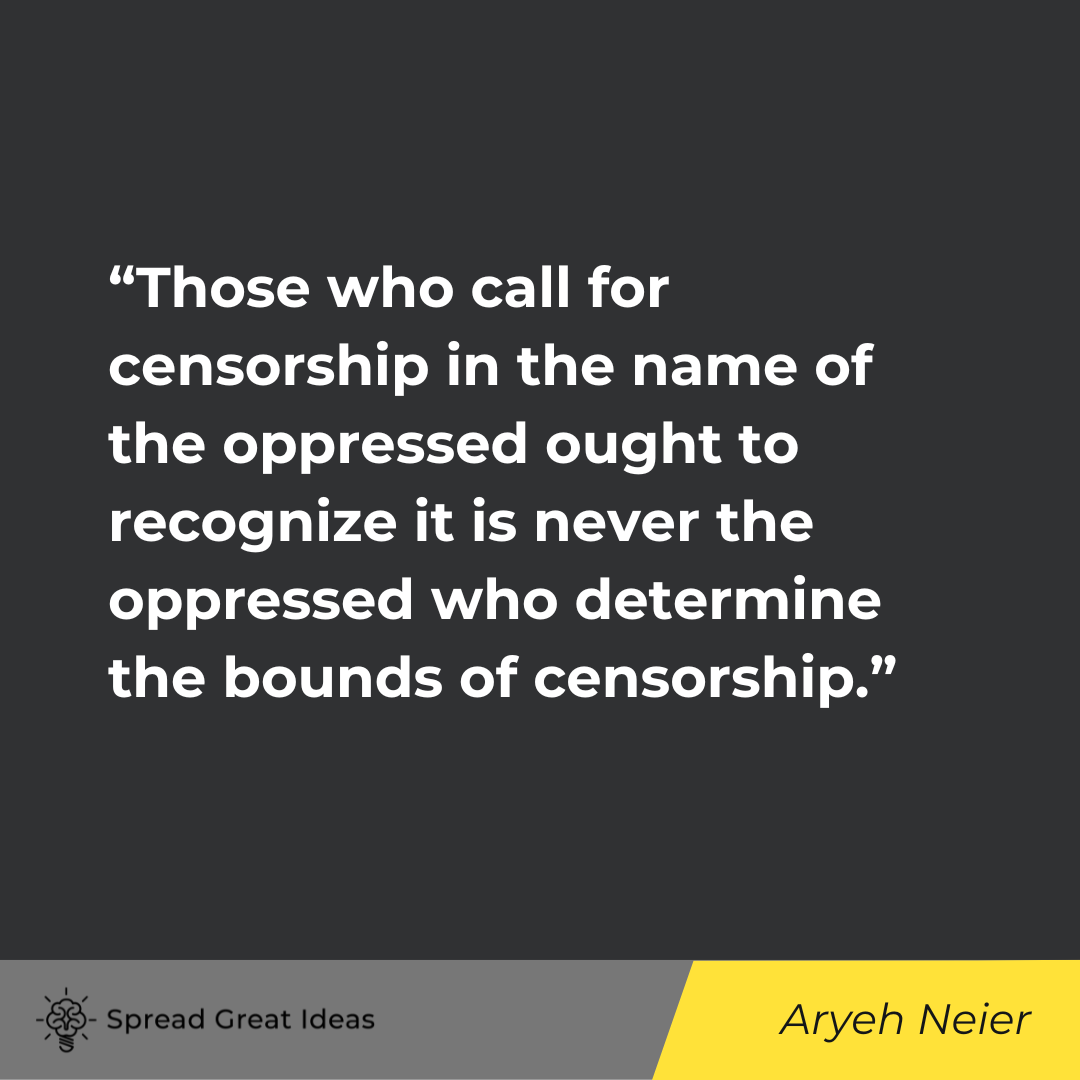
“Those who call for censorship in the name of the oppressed ought to recognize it is never the oppressed who determine the bounds of censorship.” – Aryeh Neier
“If large numbers of people are interested in freedom of speech, there will be freedom of speech—even if the law forbids it.” — George Orwell
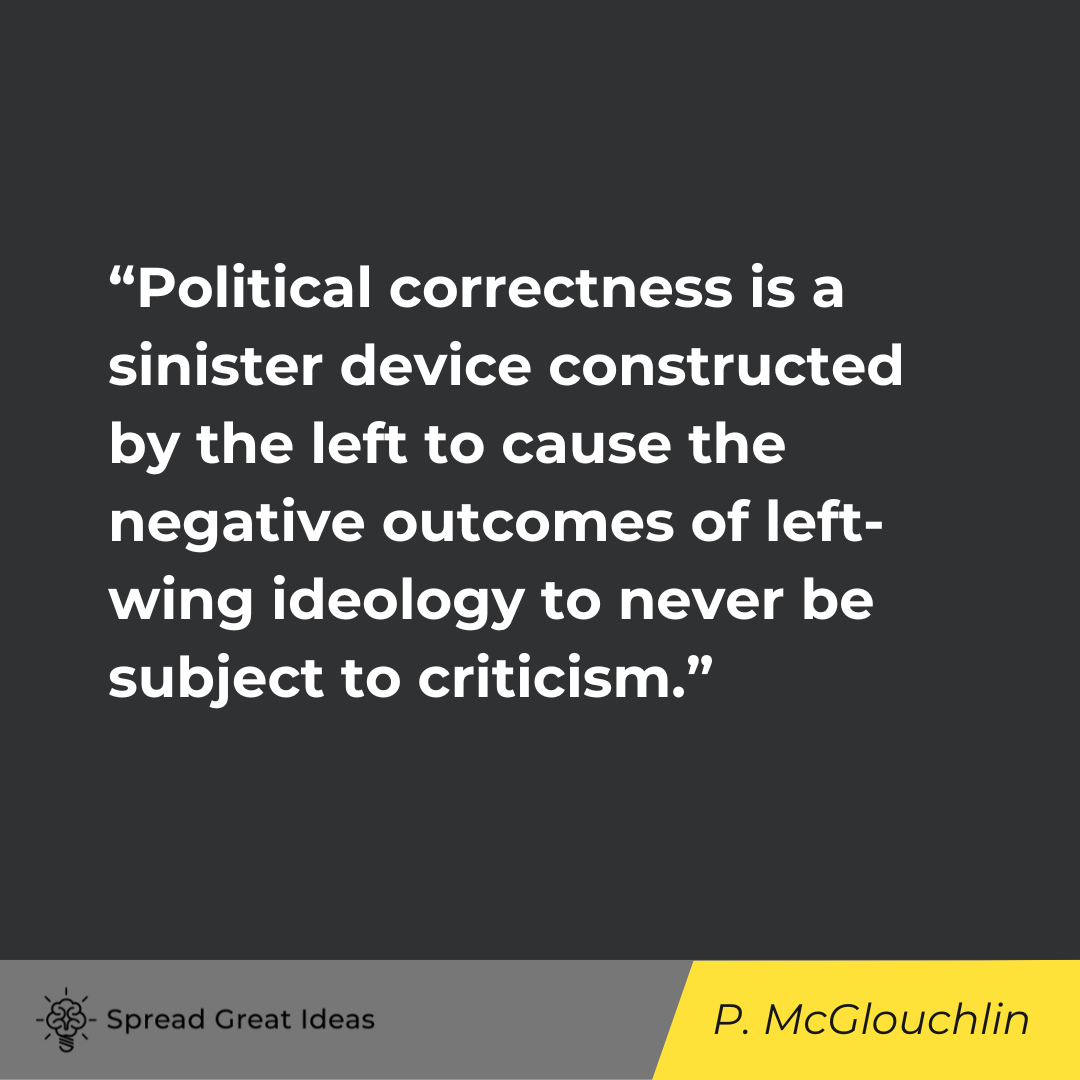
“Political correctness is a sinister device constructed by the left to cause the negative outcomes of left-wing ideology to never be subject to criticism.” – Peter McGlouchlin, Easy Meat: Inside the British Grooming Gang Scandal
“The American fascist would prefer not to use violence. His method is to poison the channels of public information.” — Henry A. Wallace
History and critical thinking go hand in hand. Check out our collection of quotes on the lessons of history and their relevance today.

